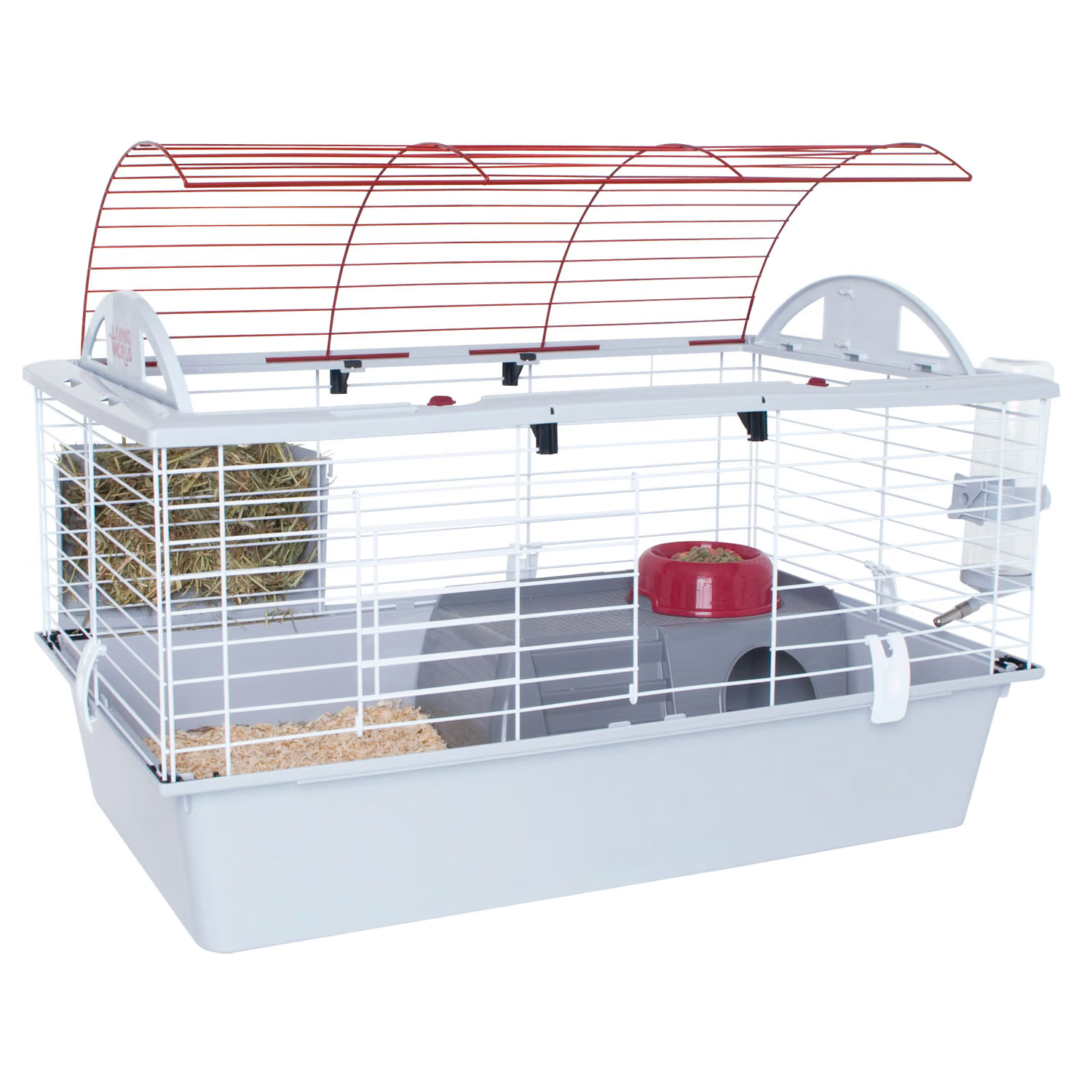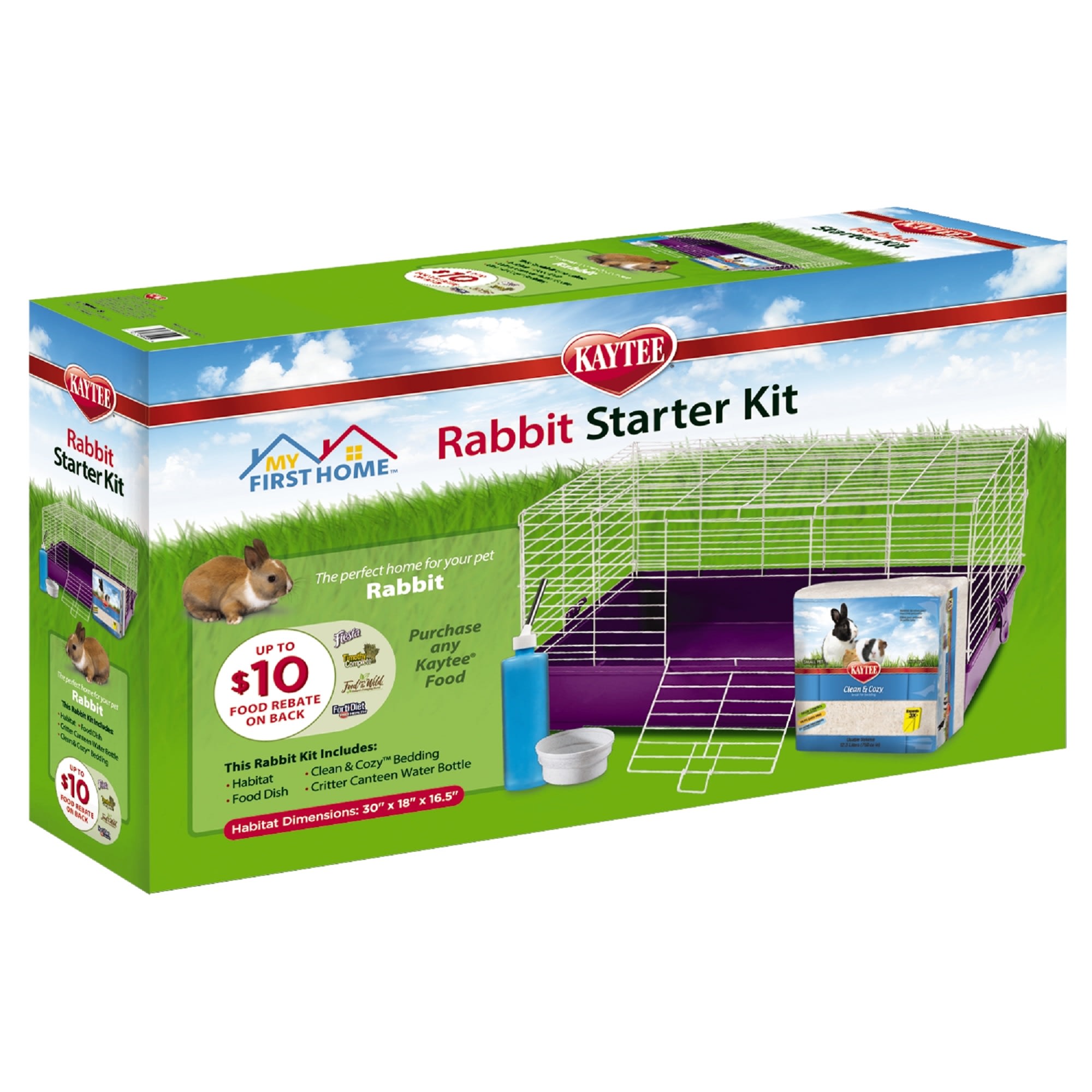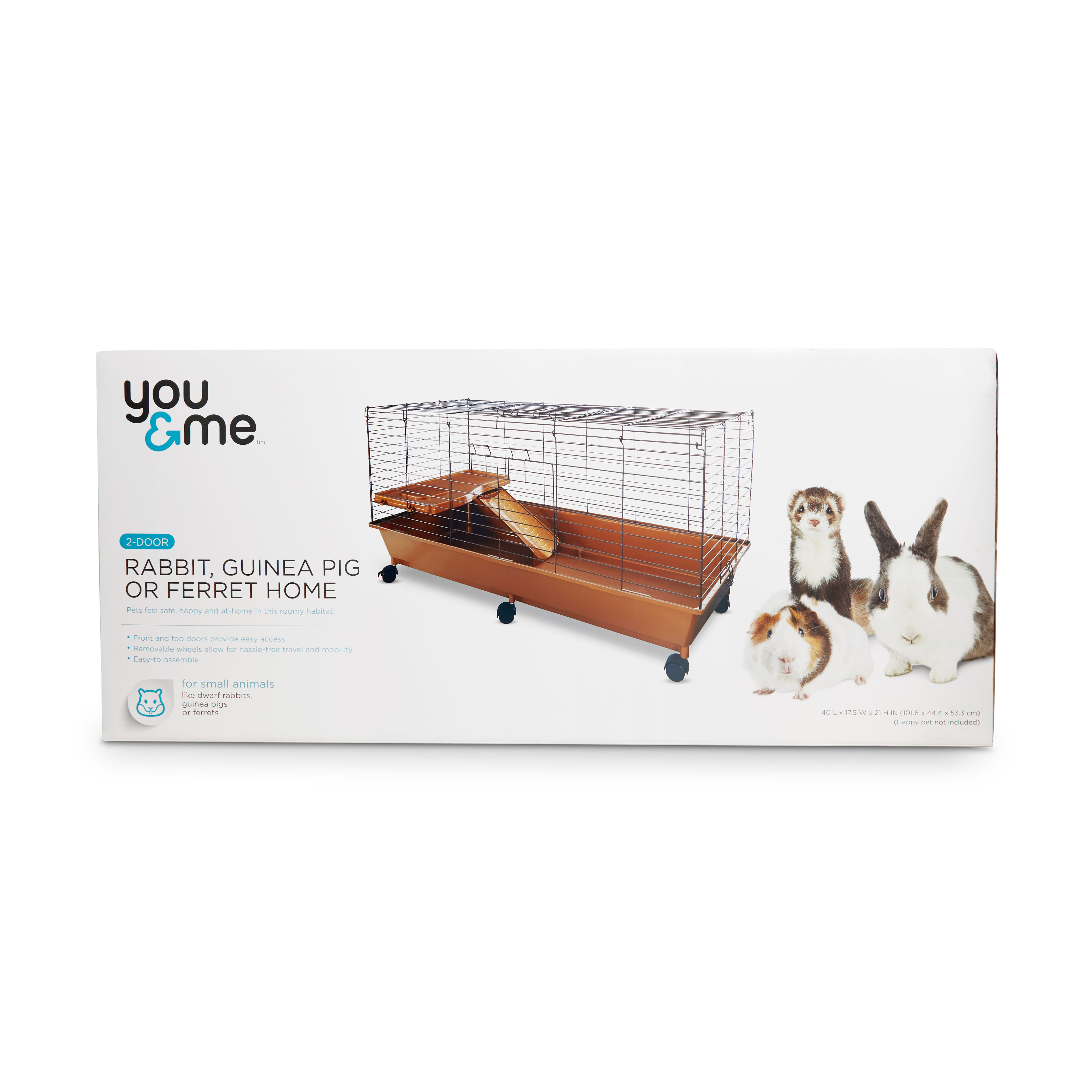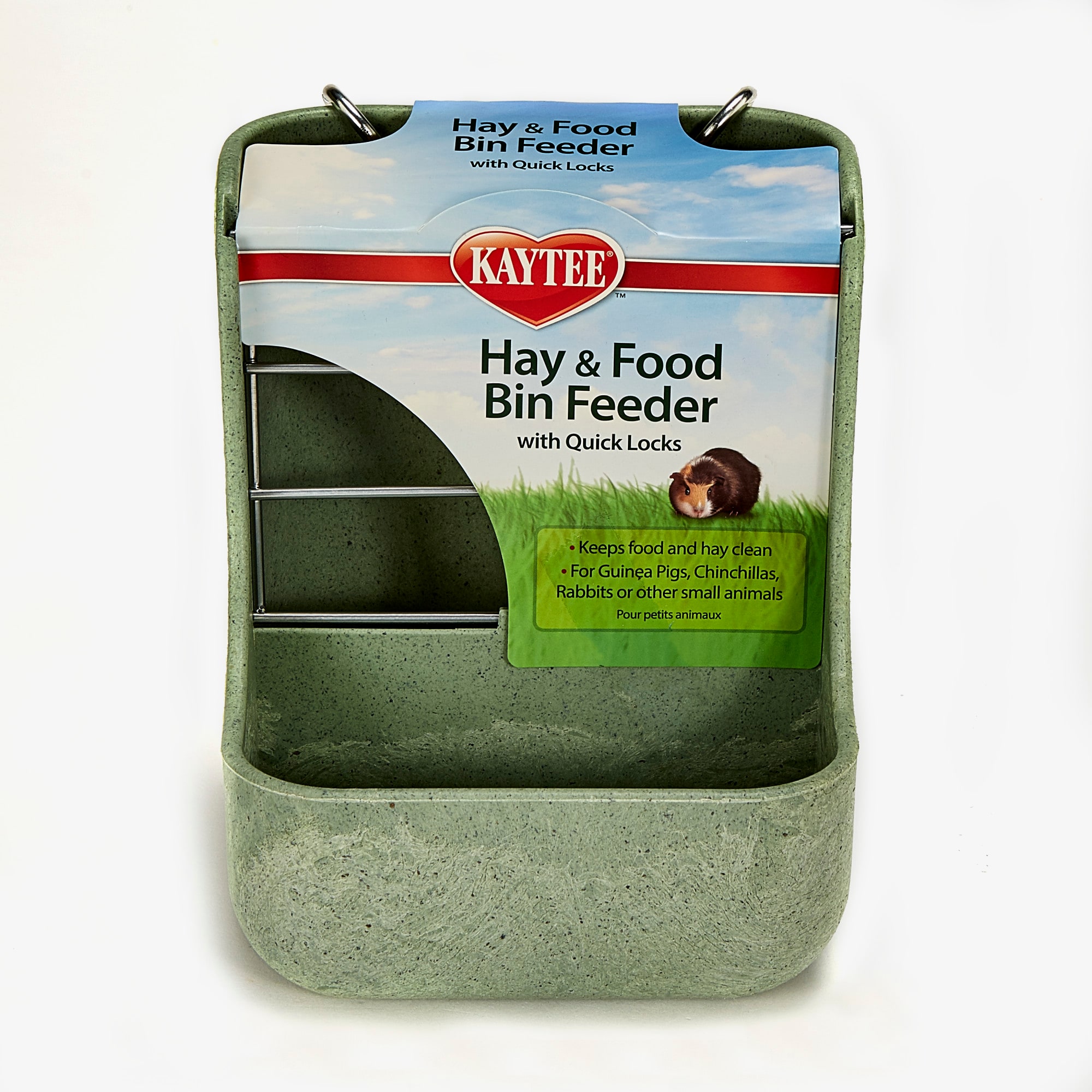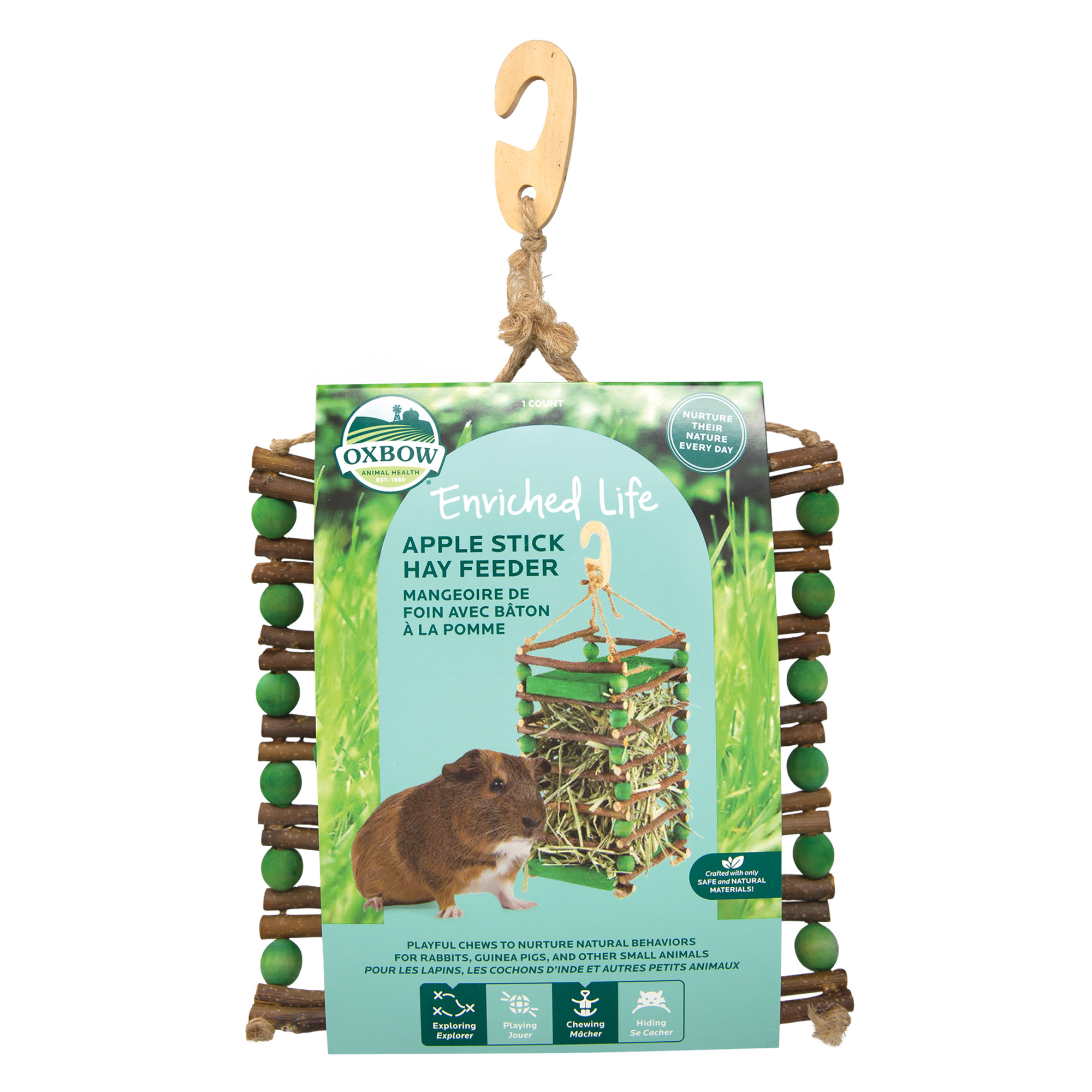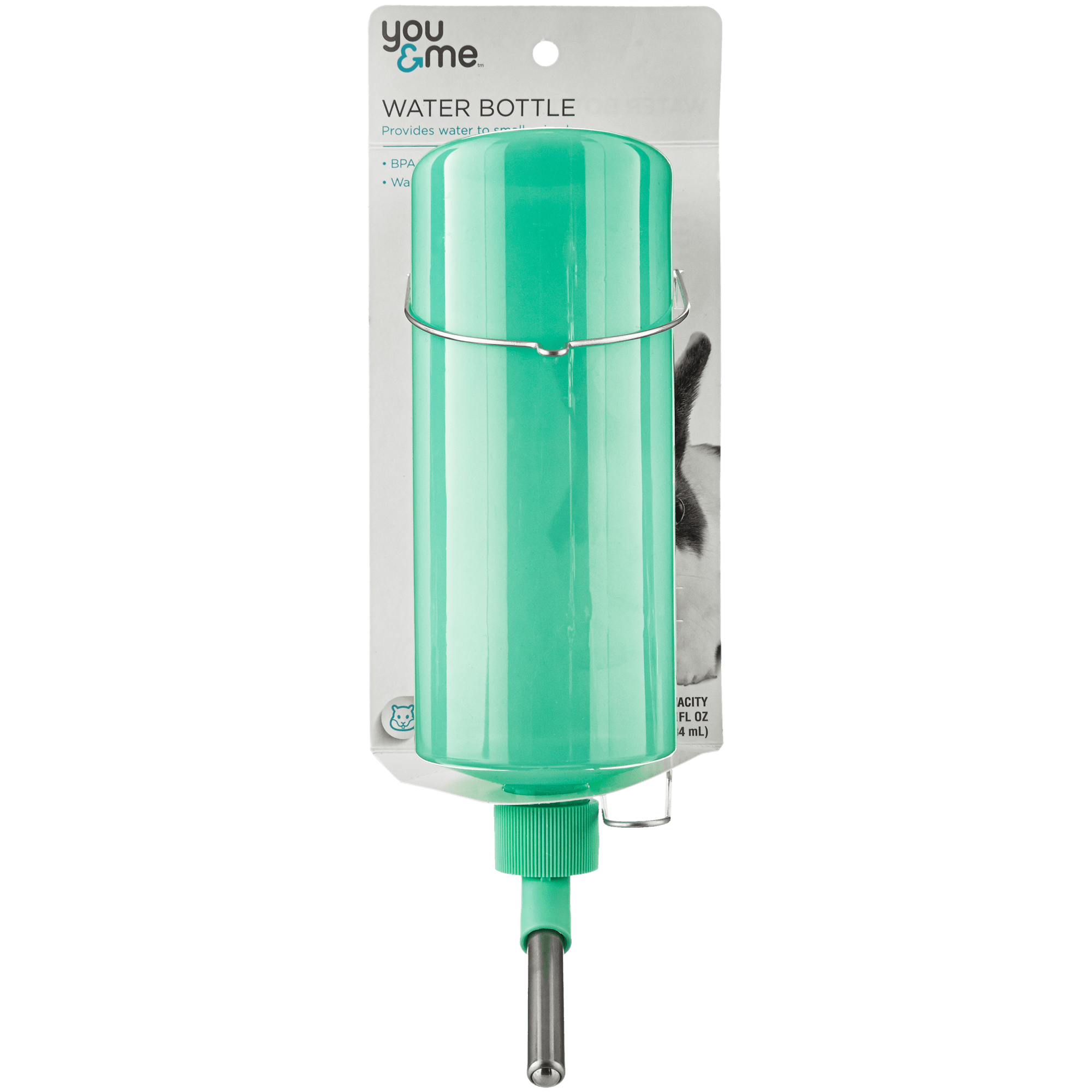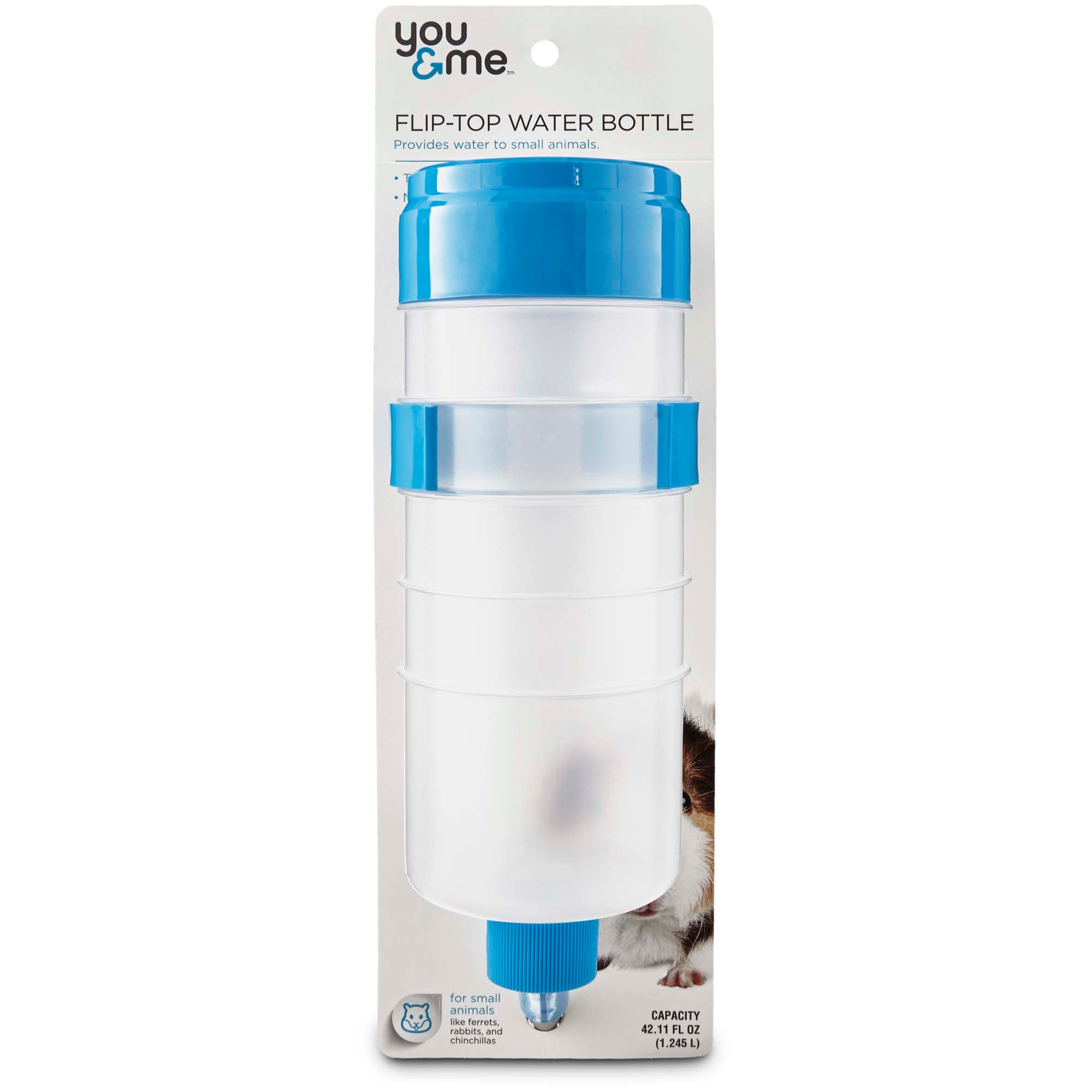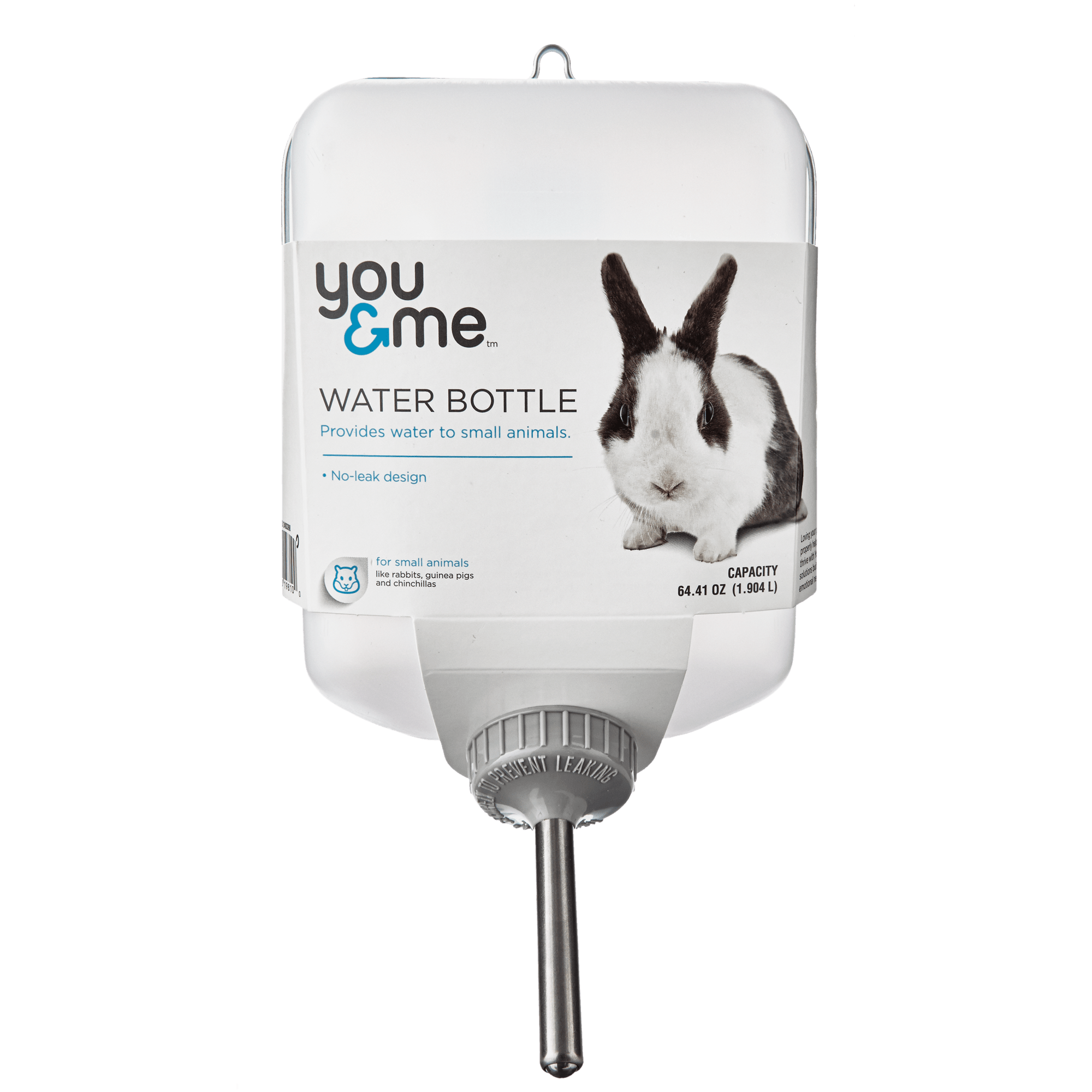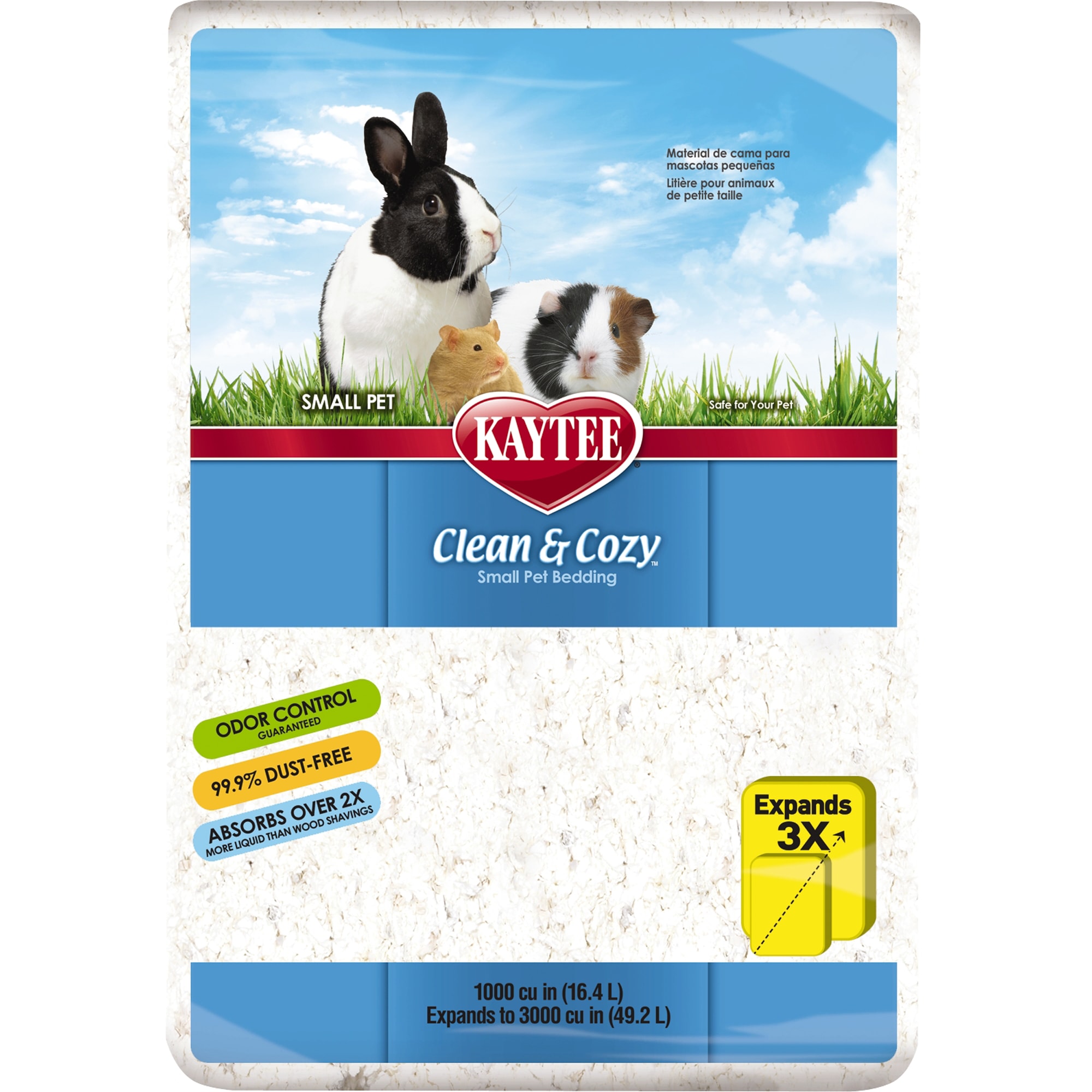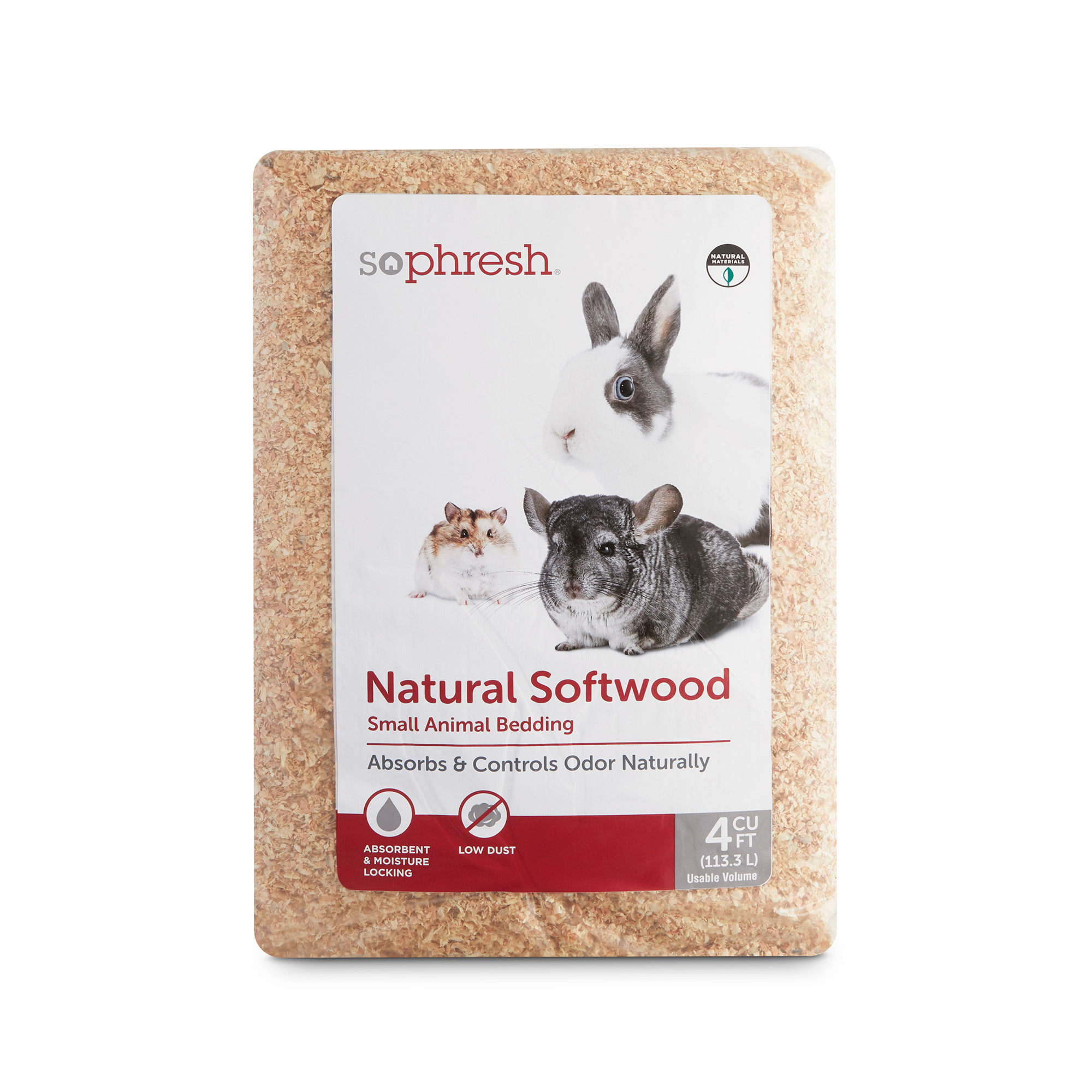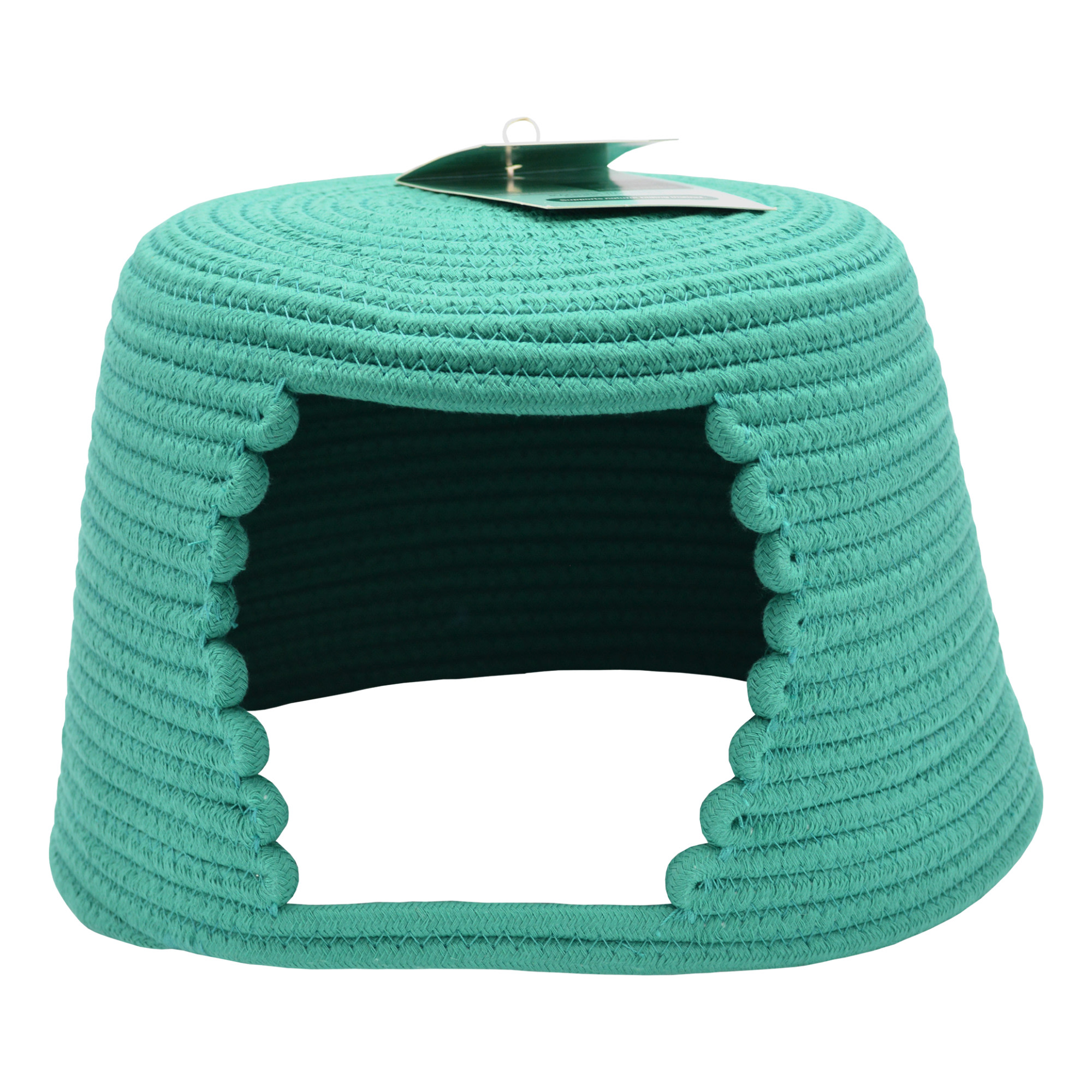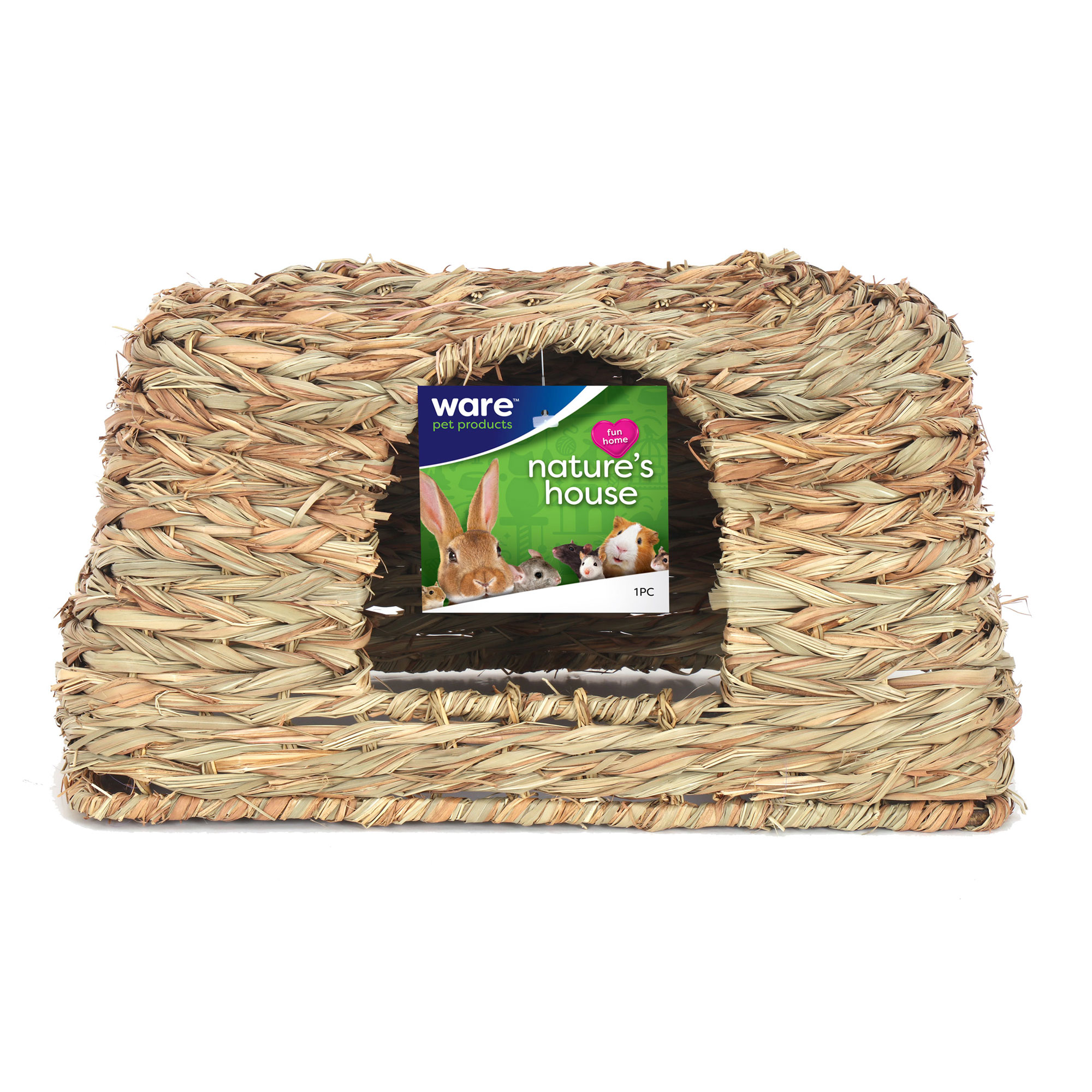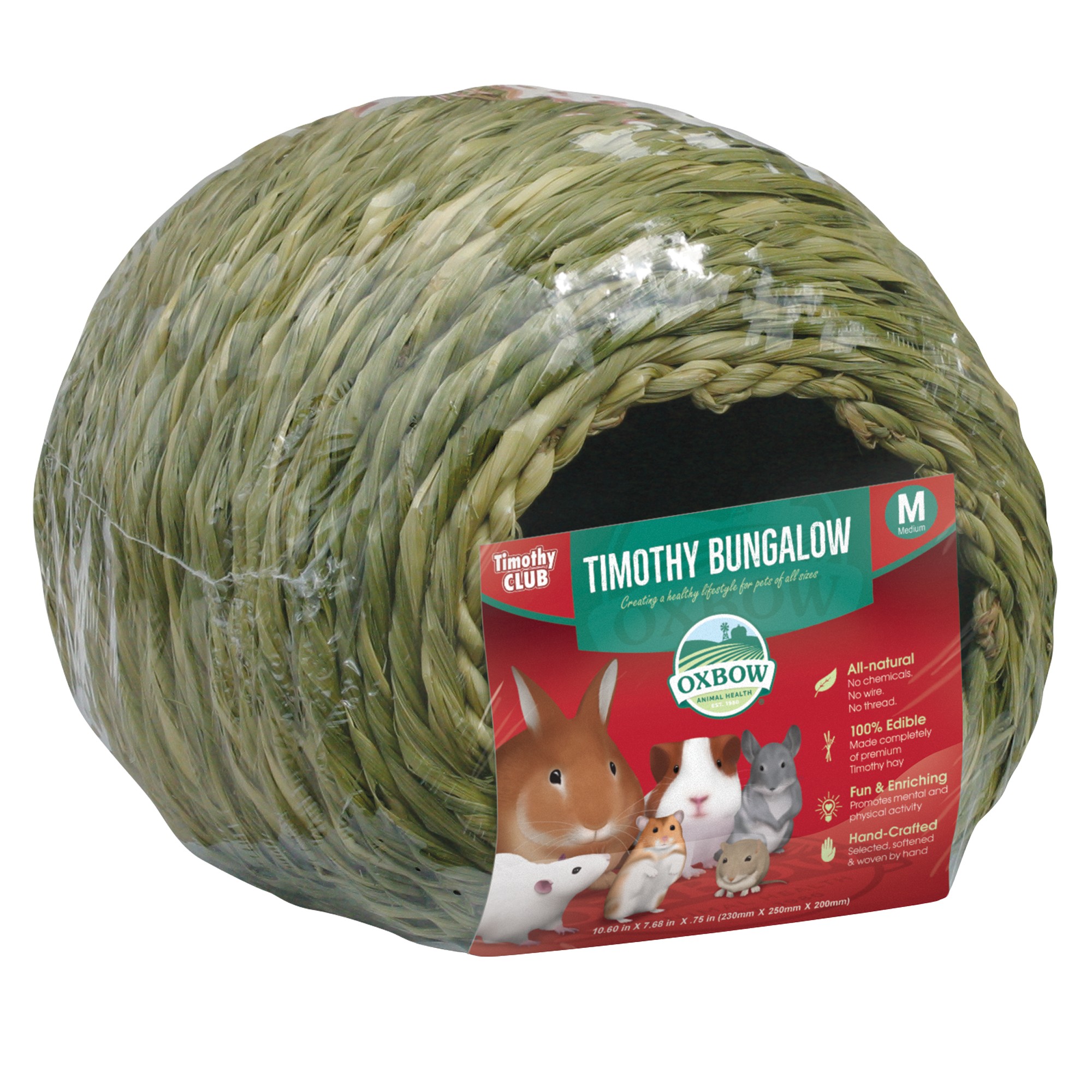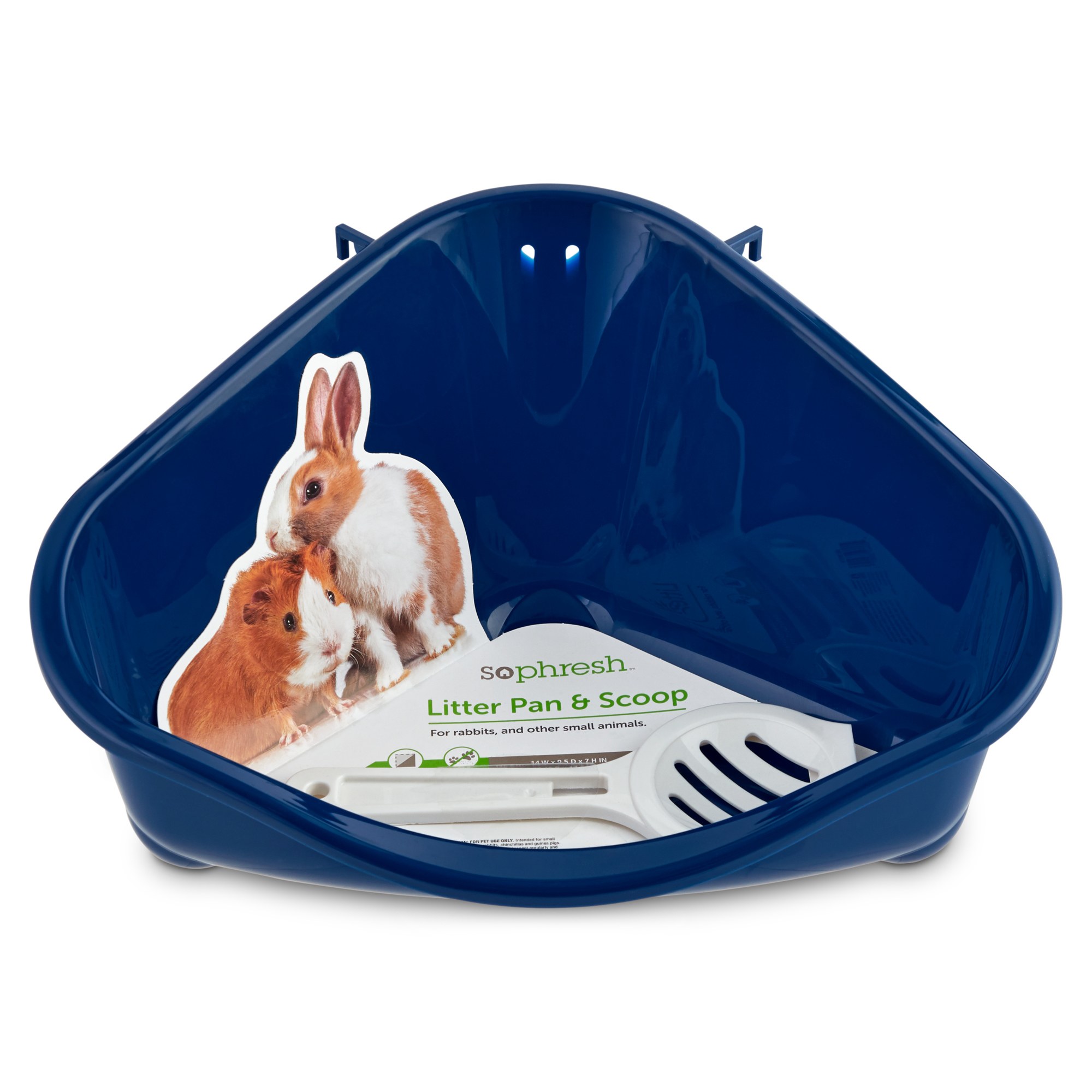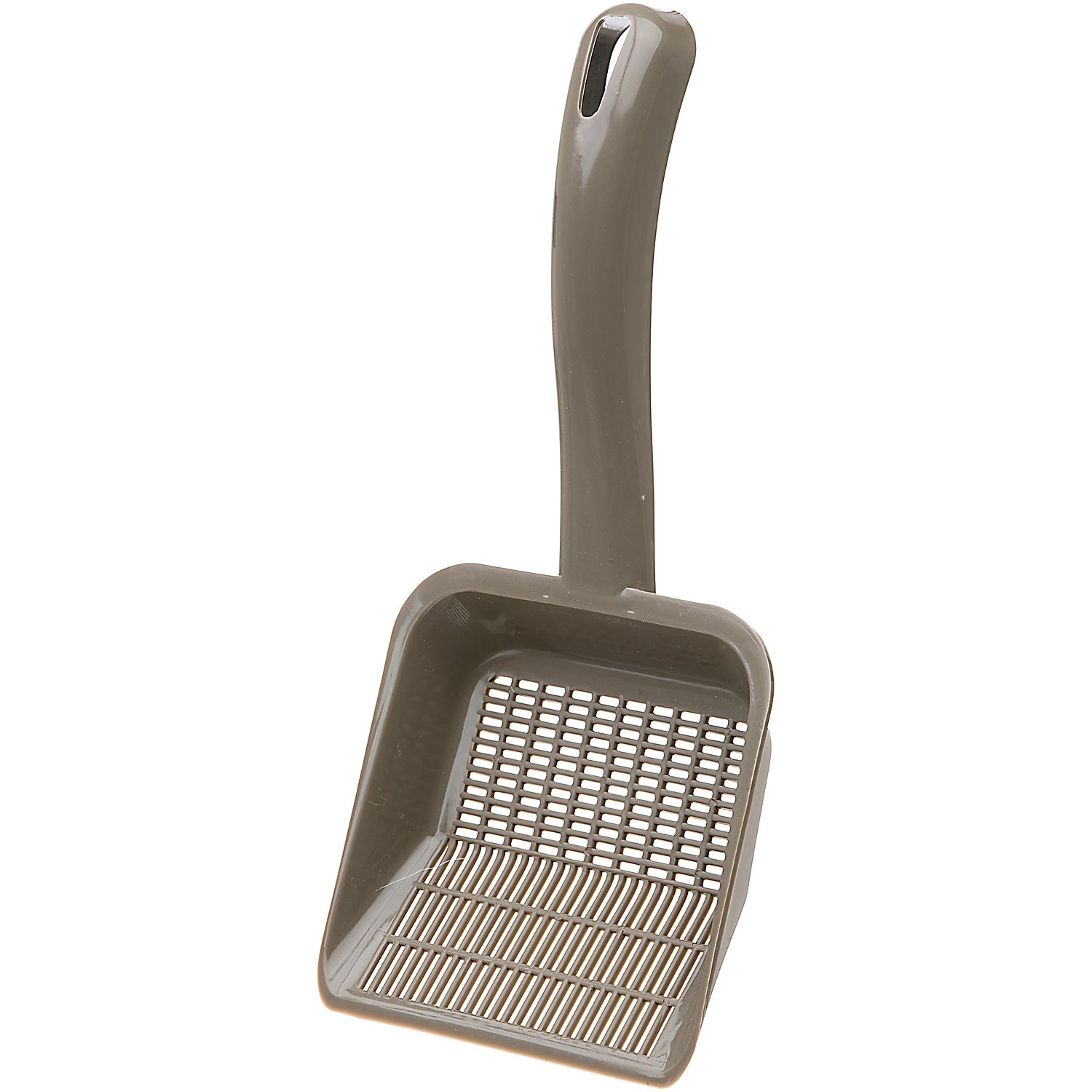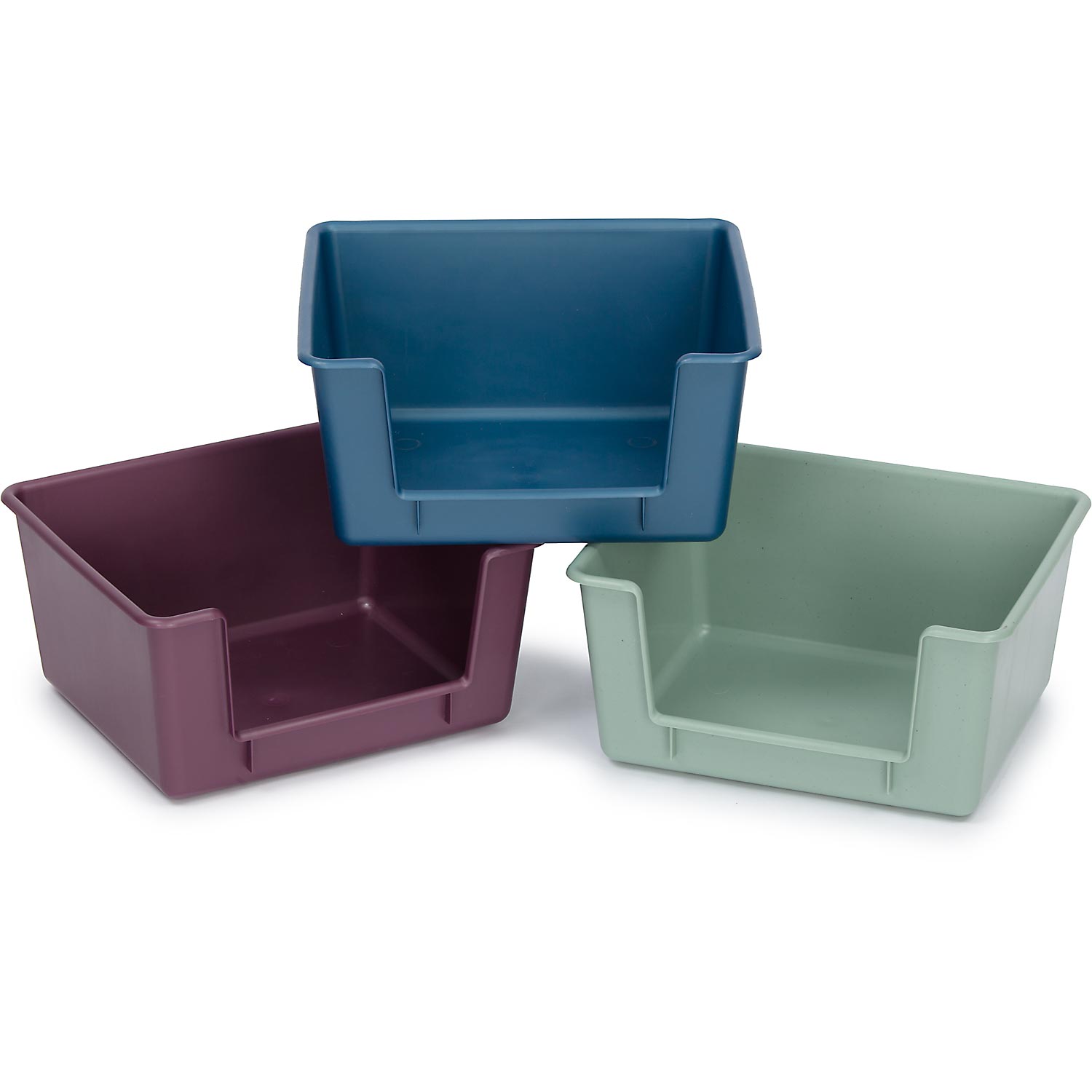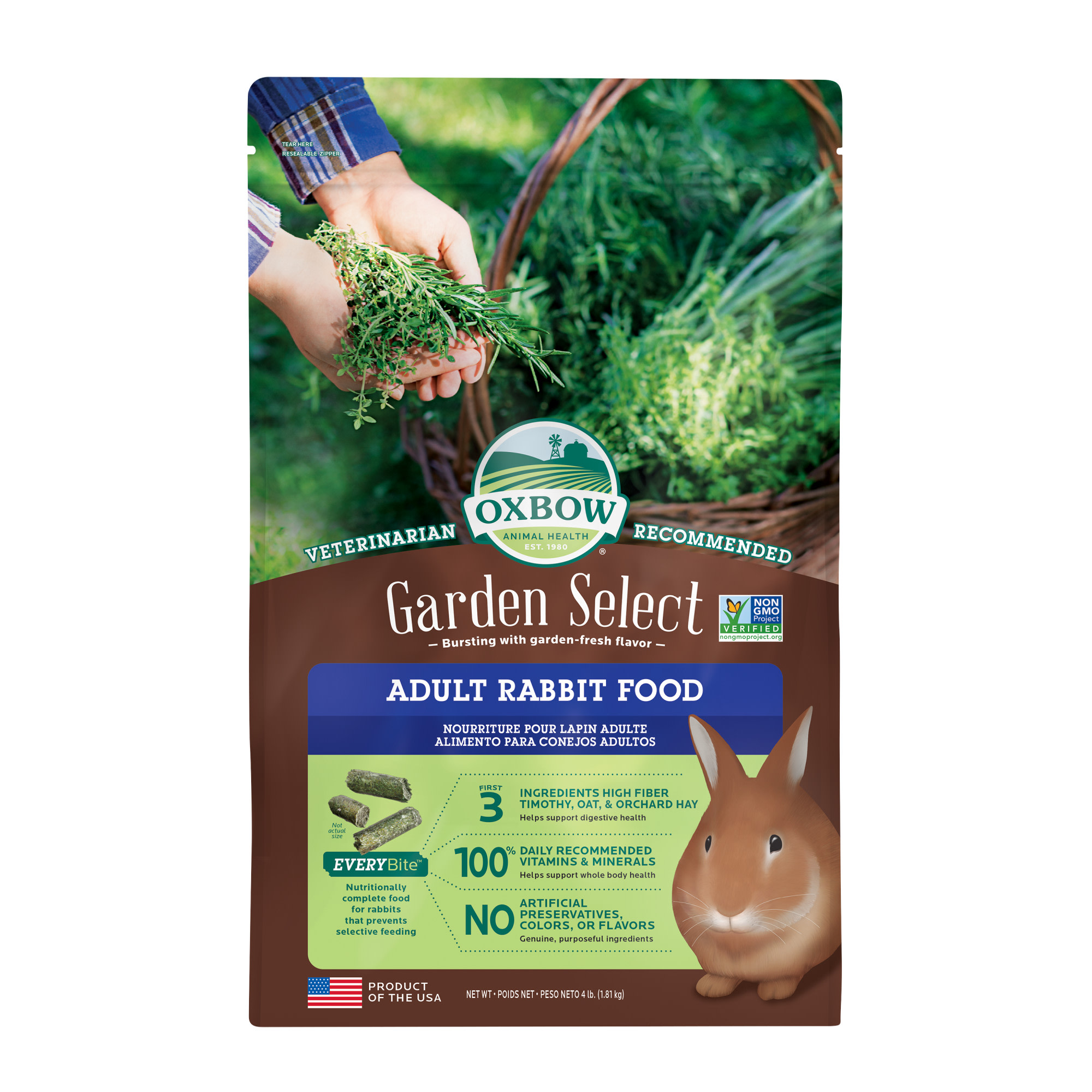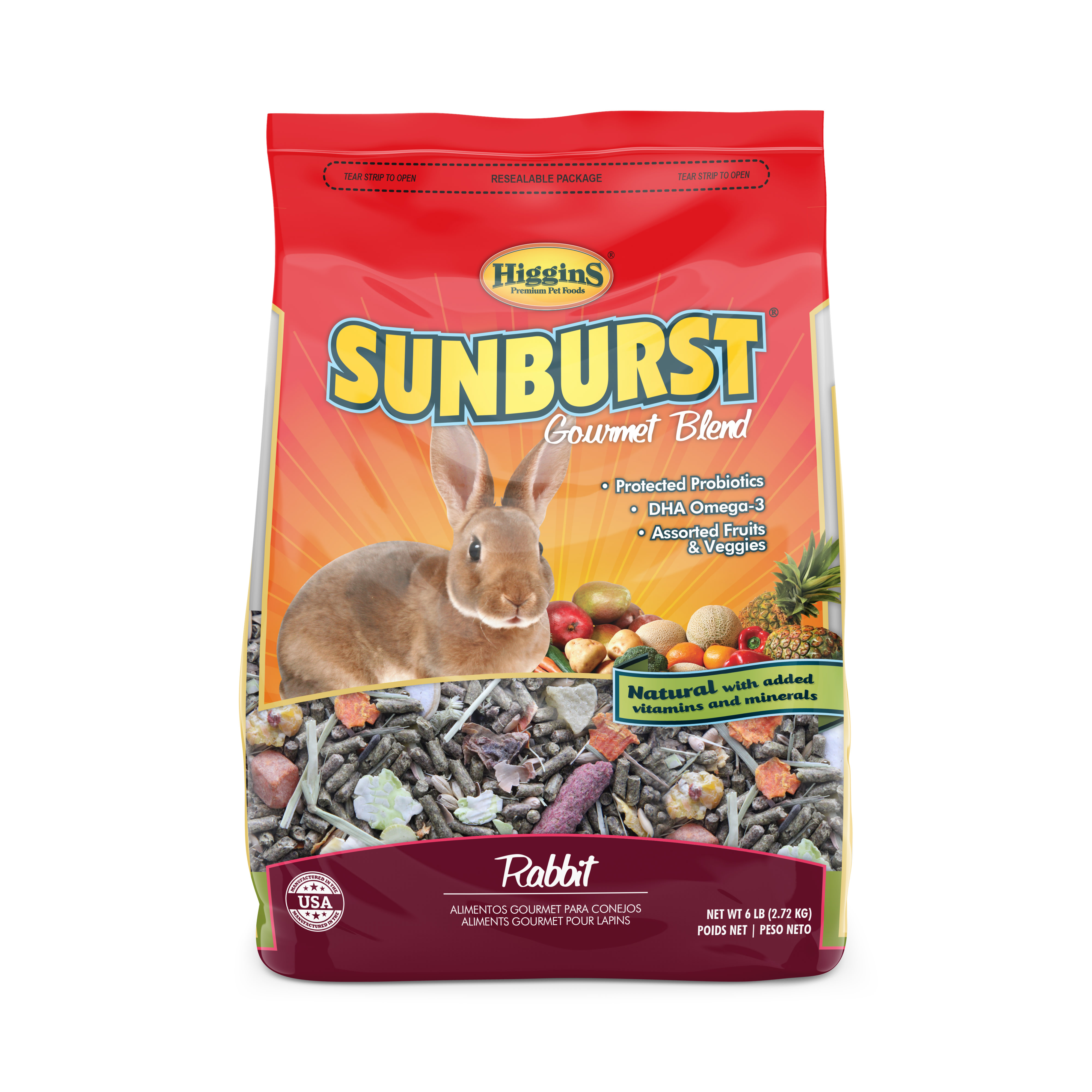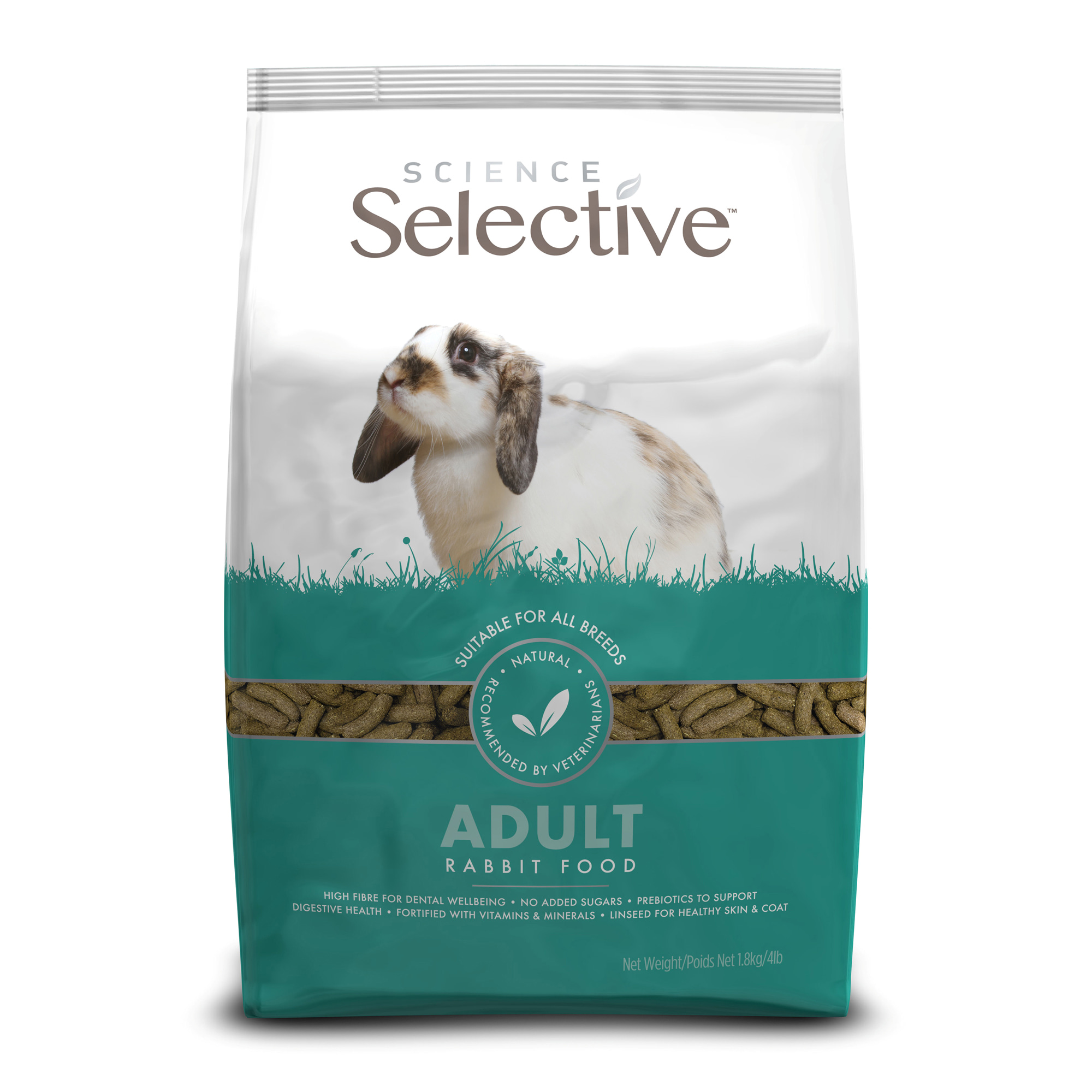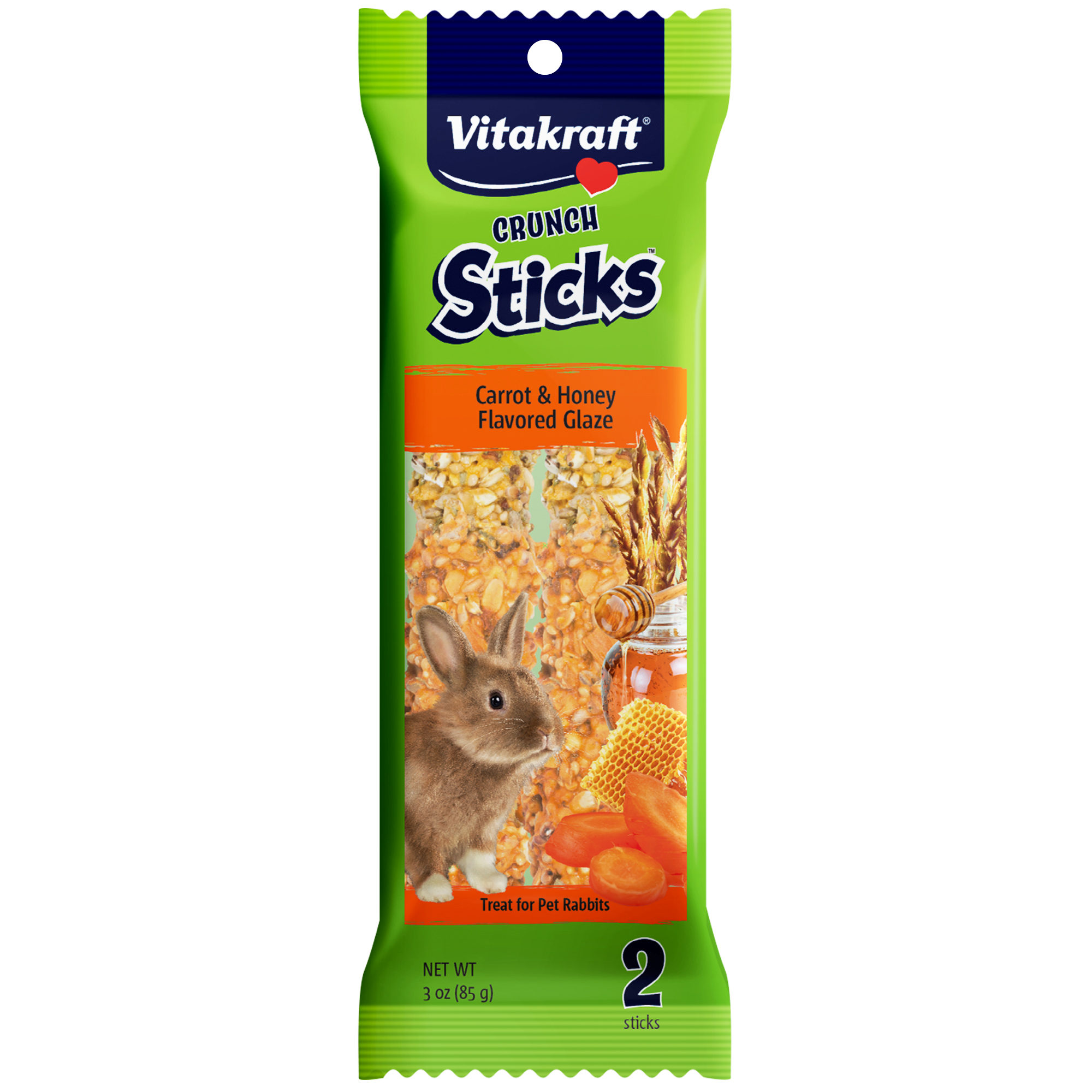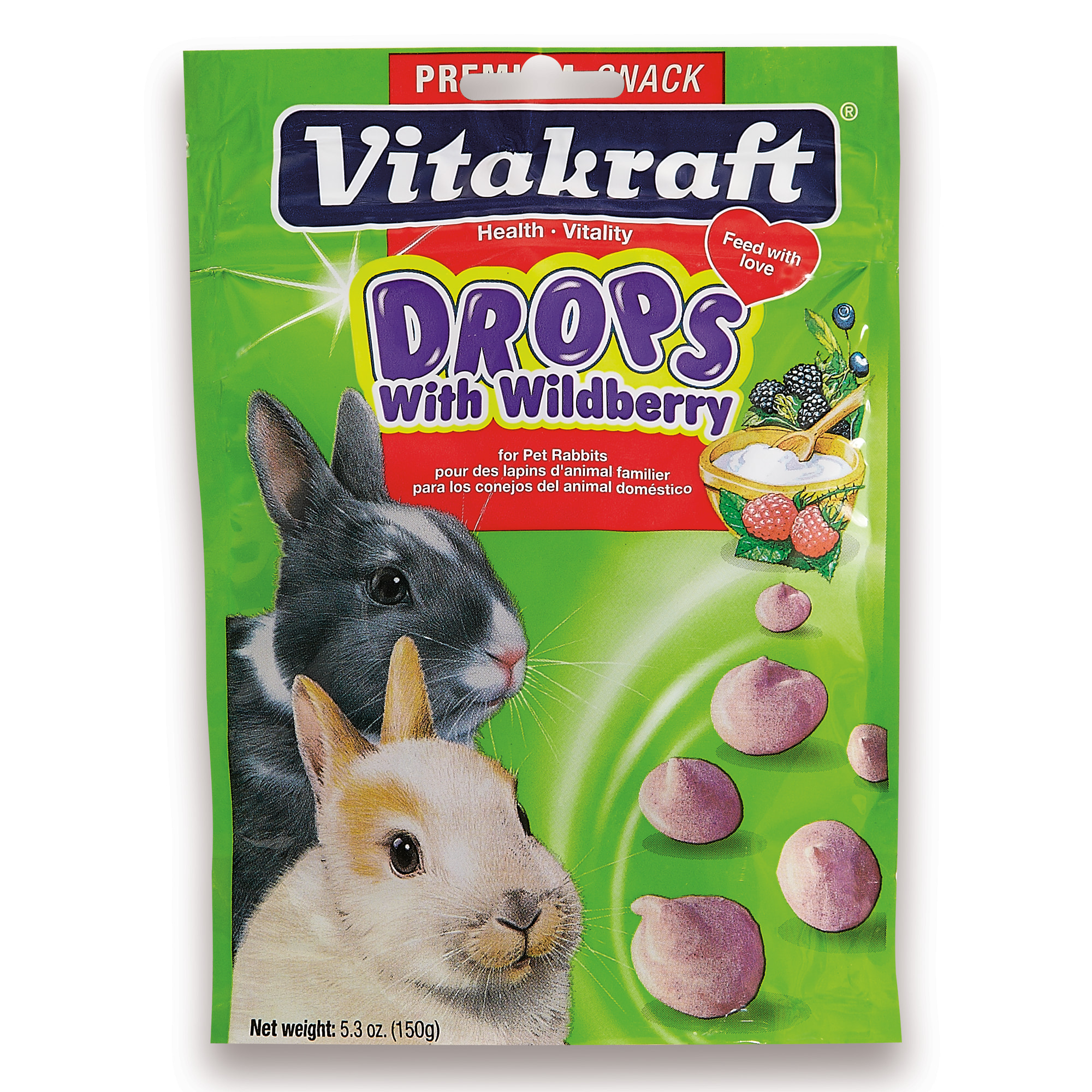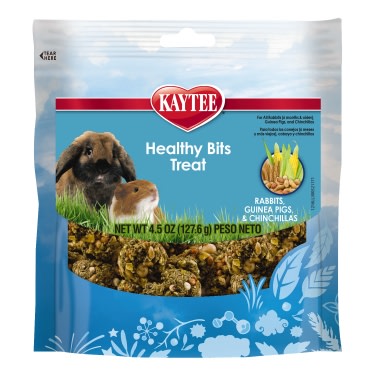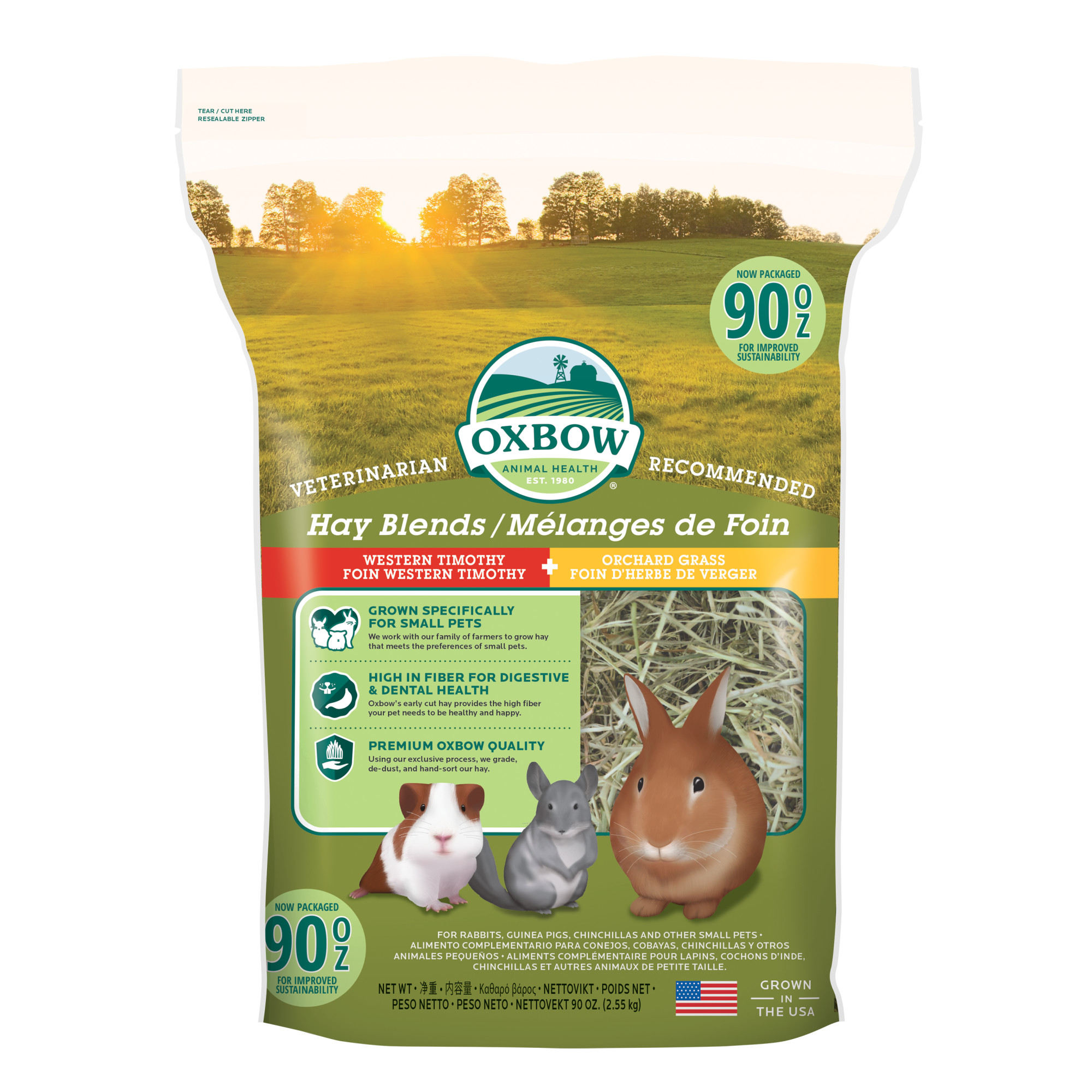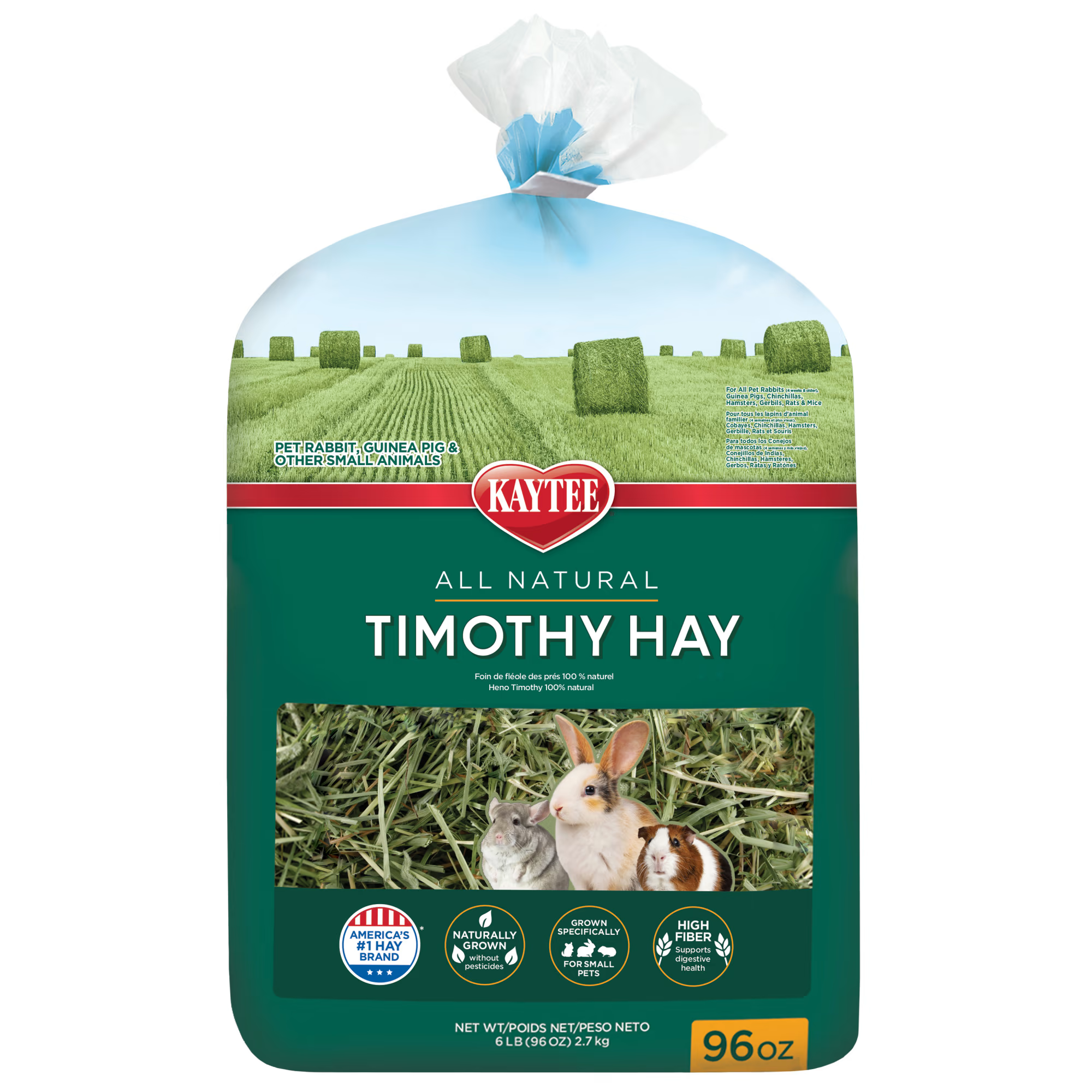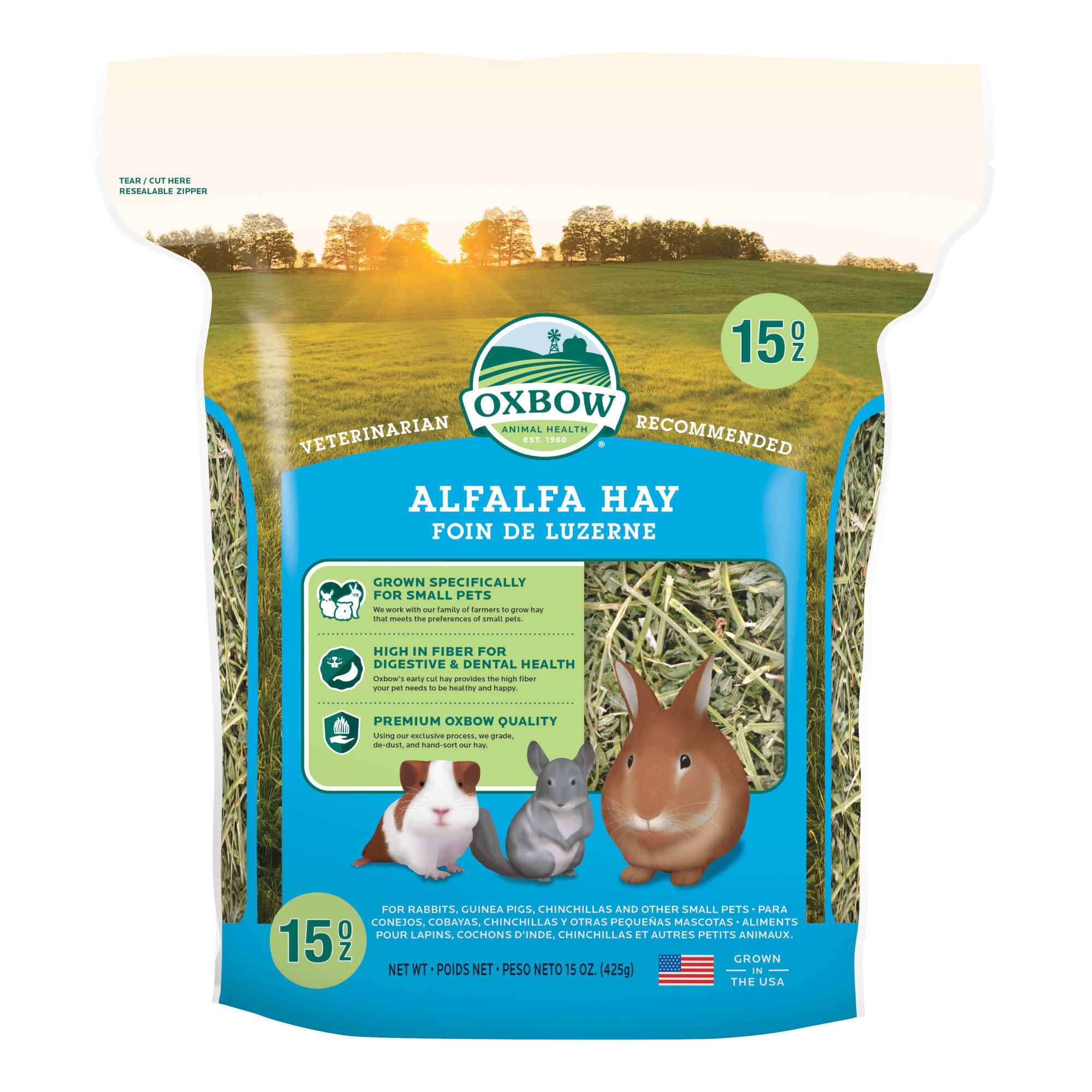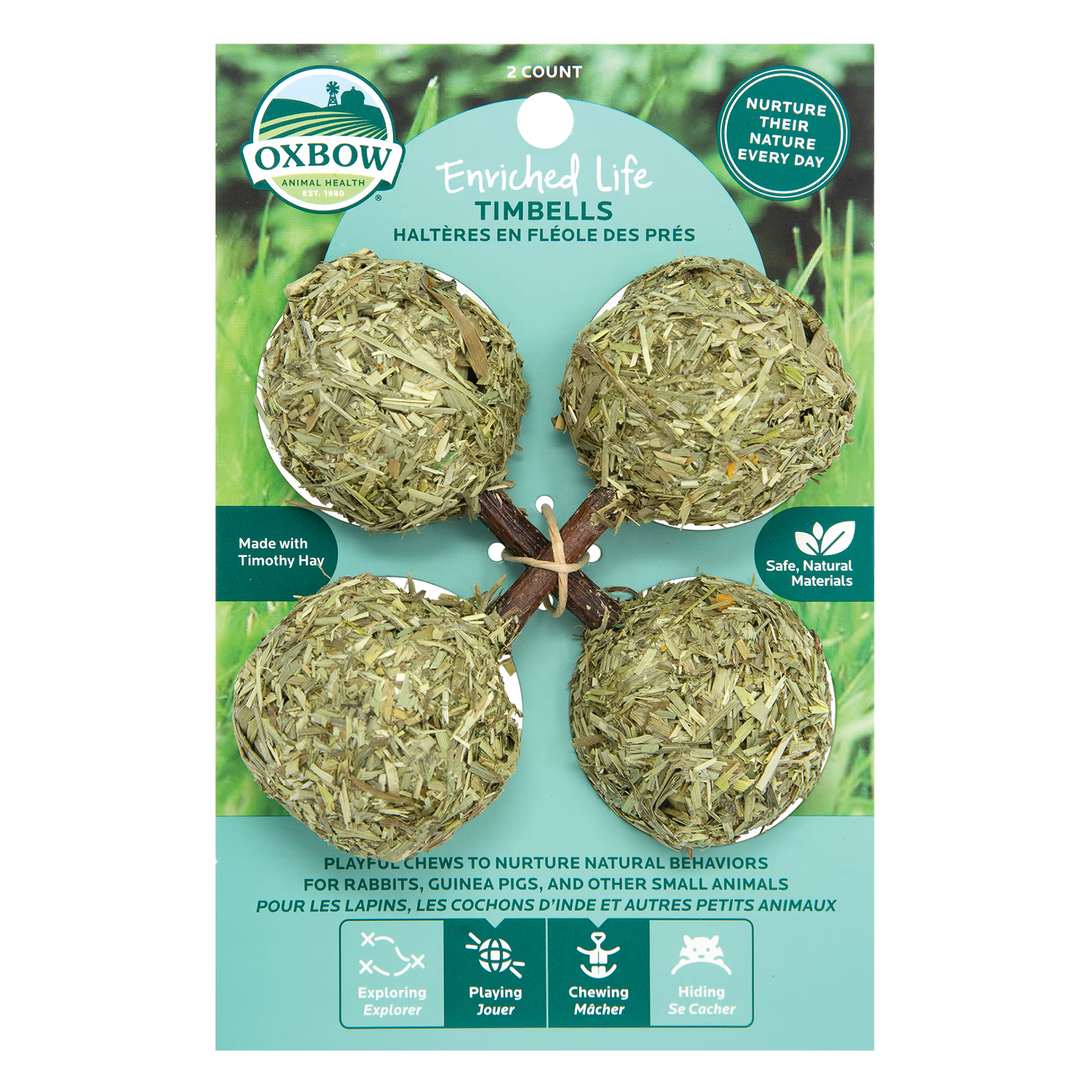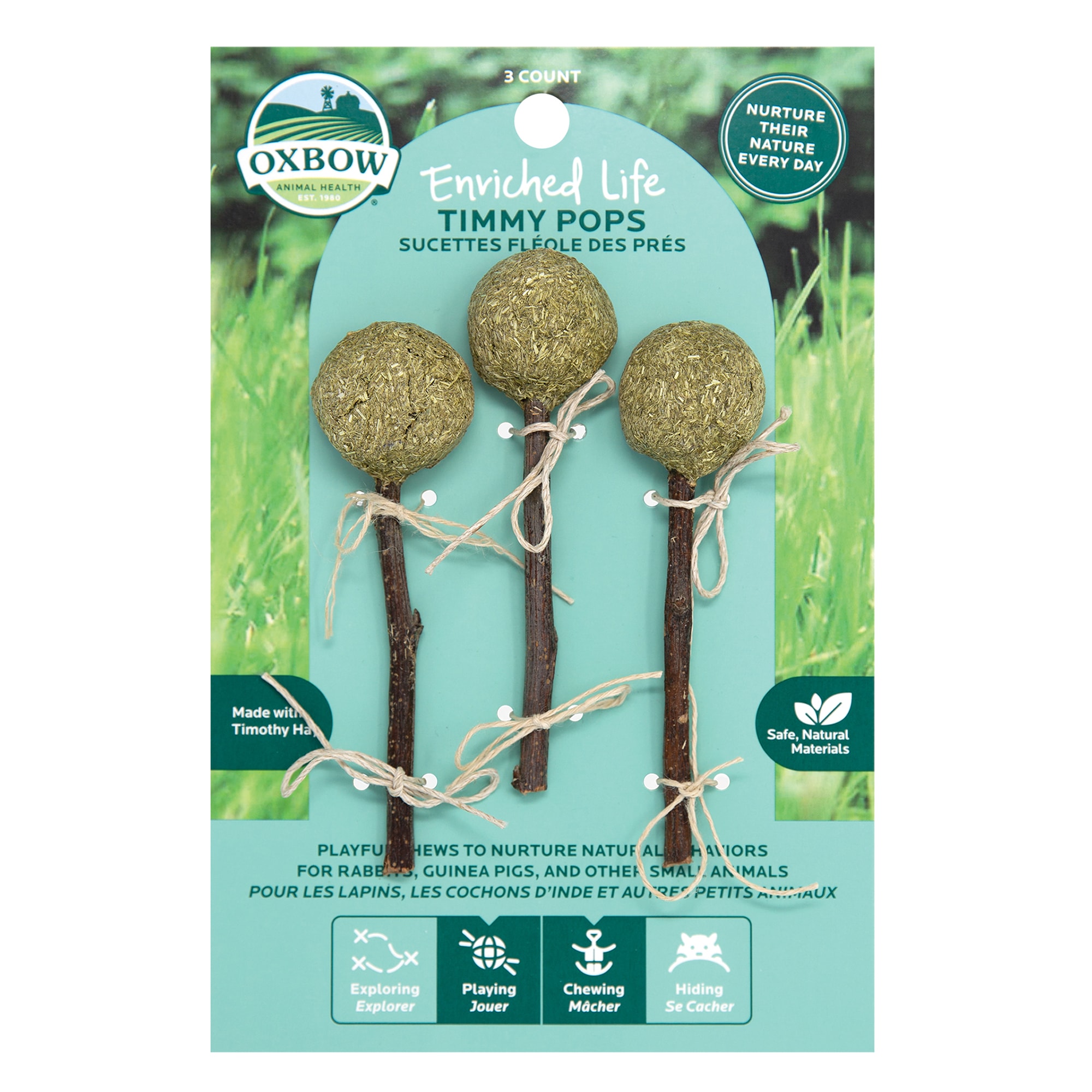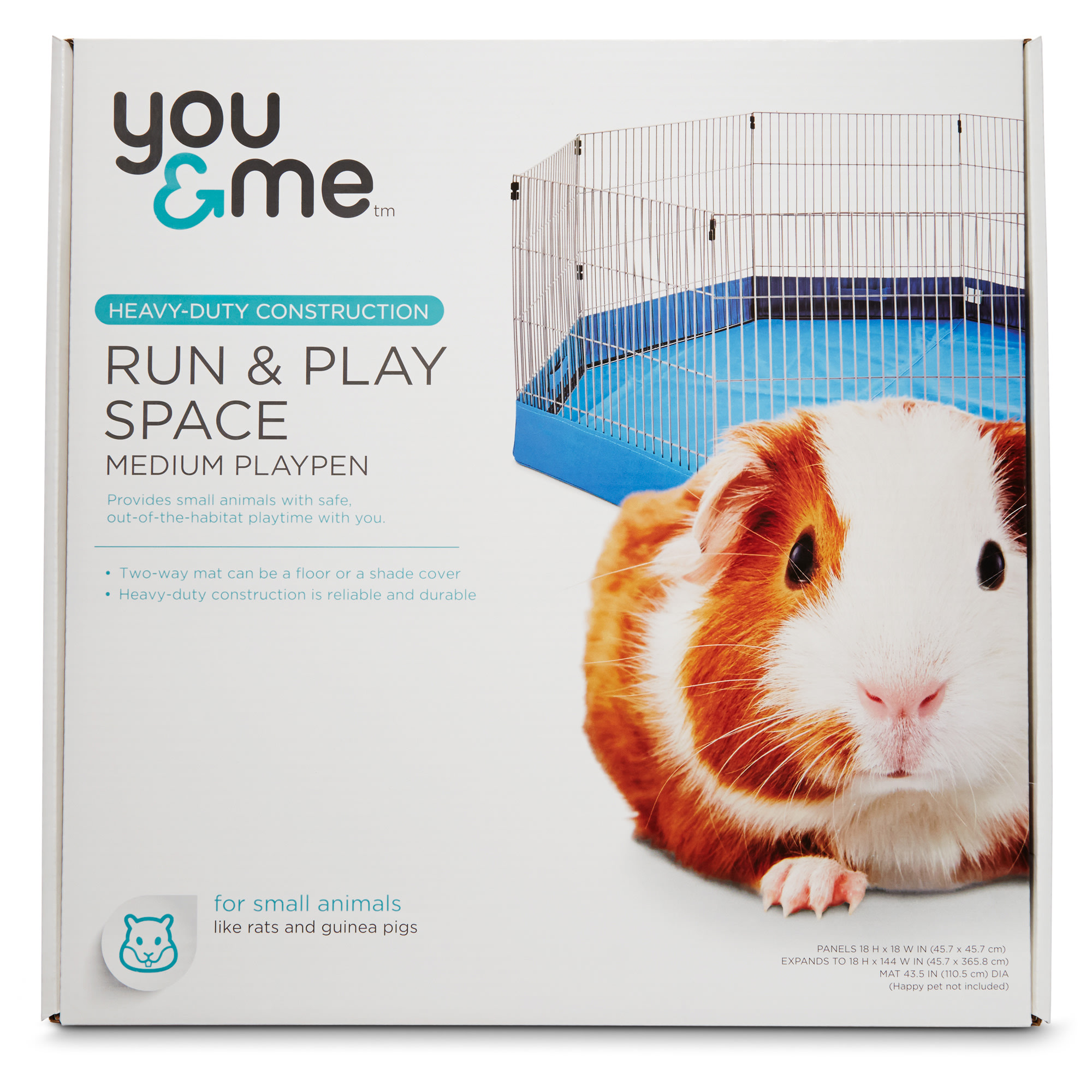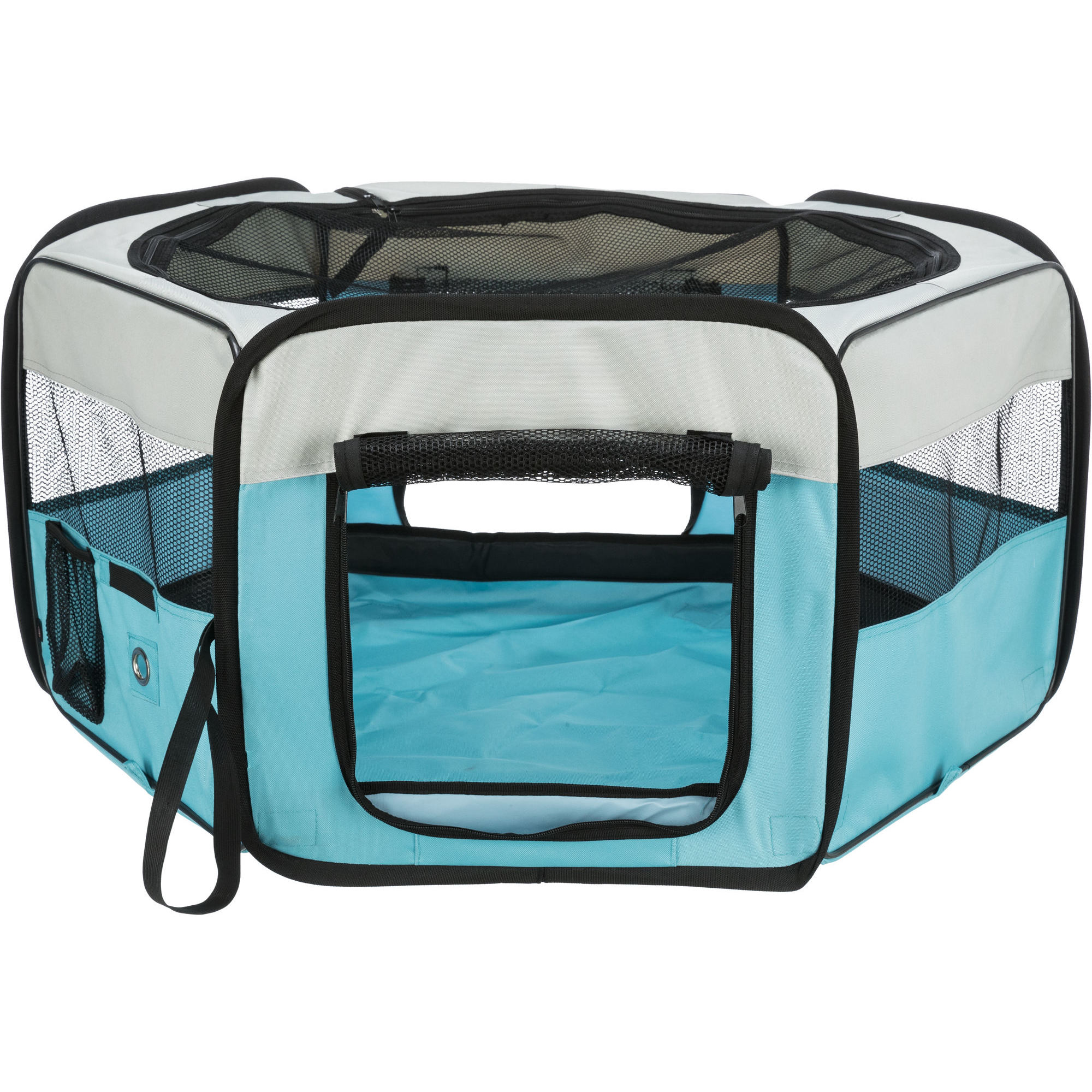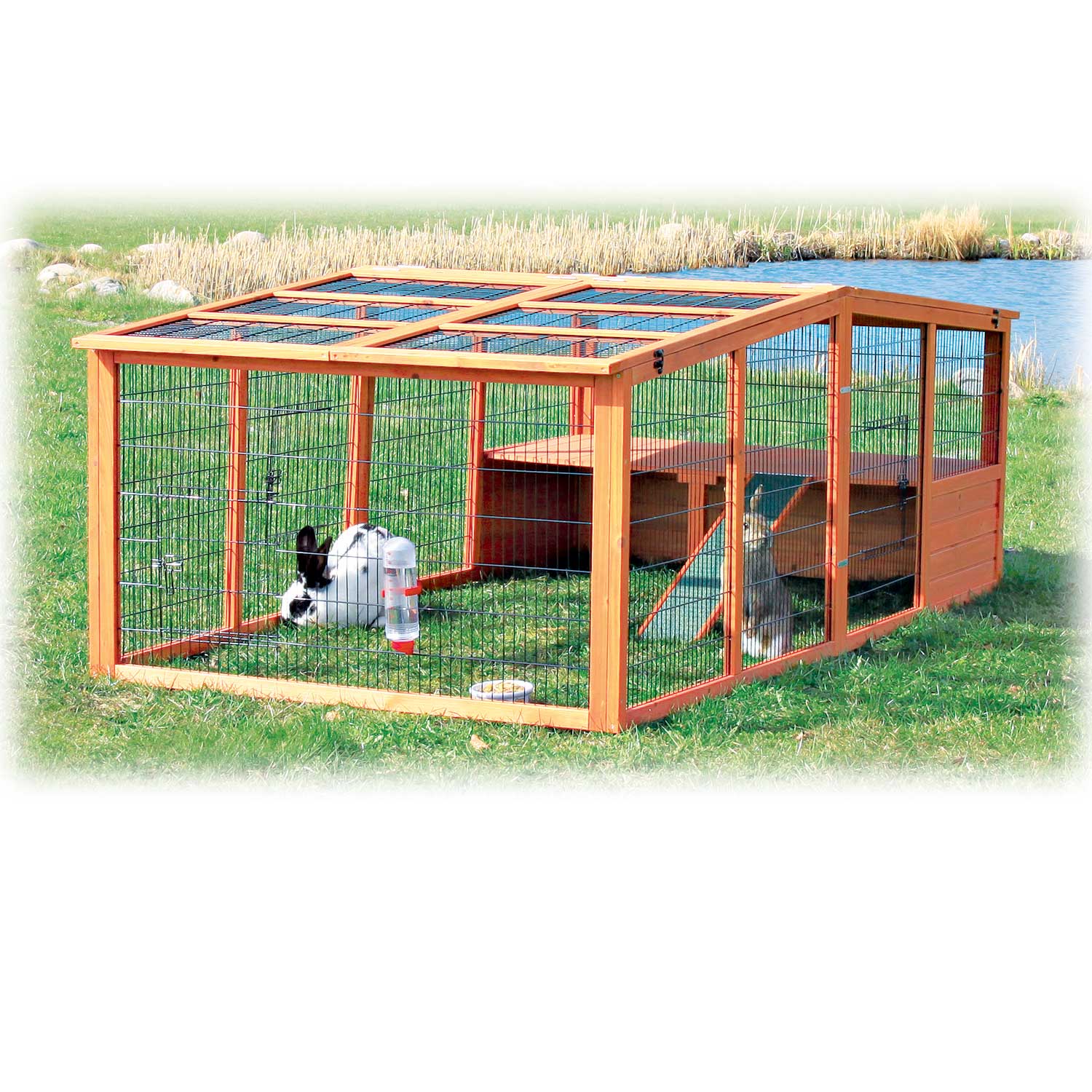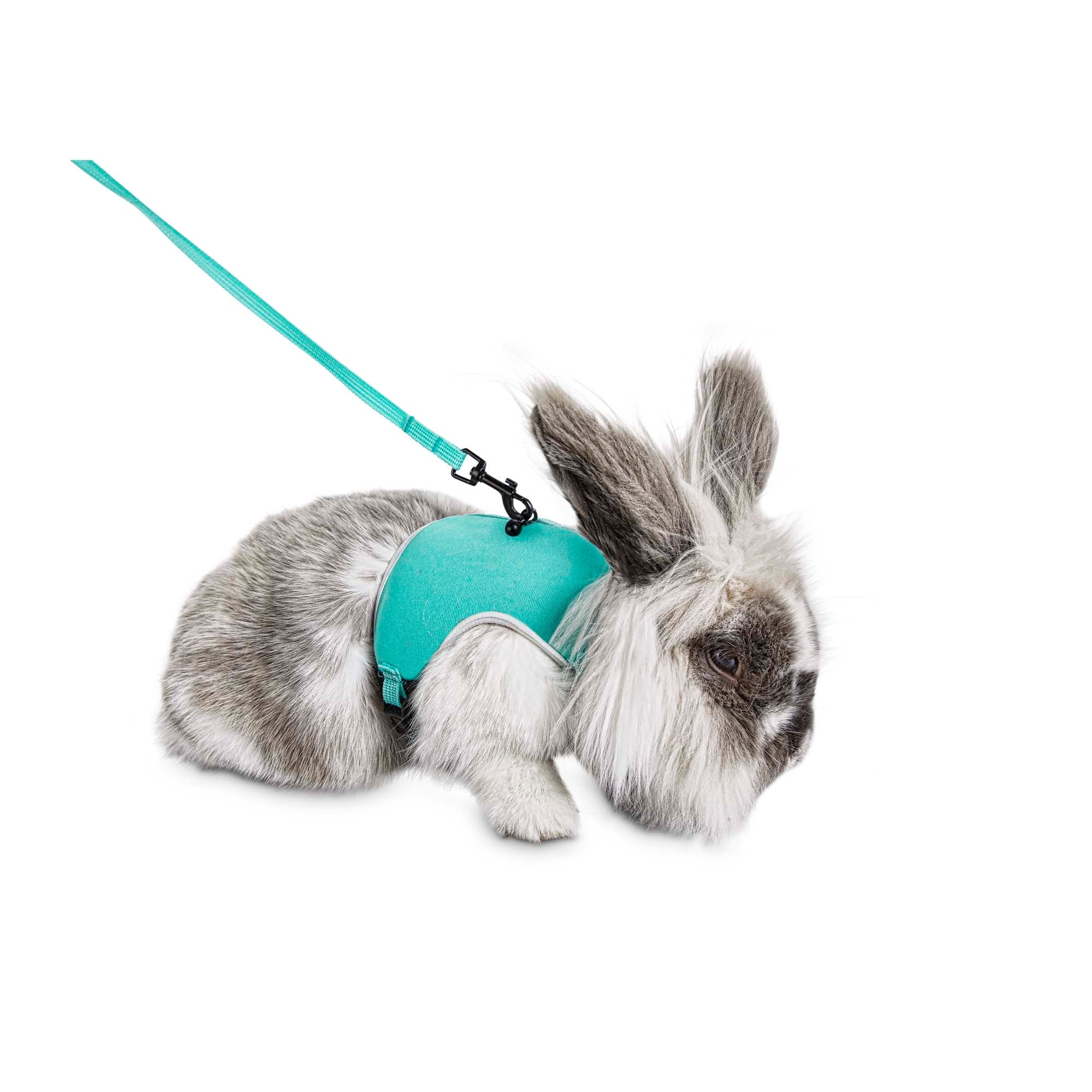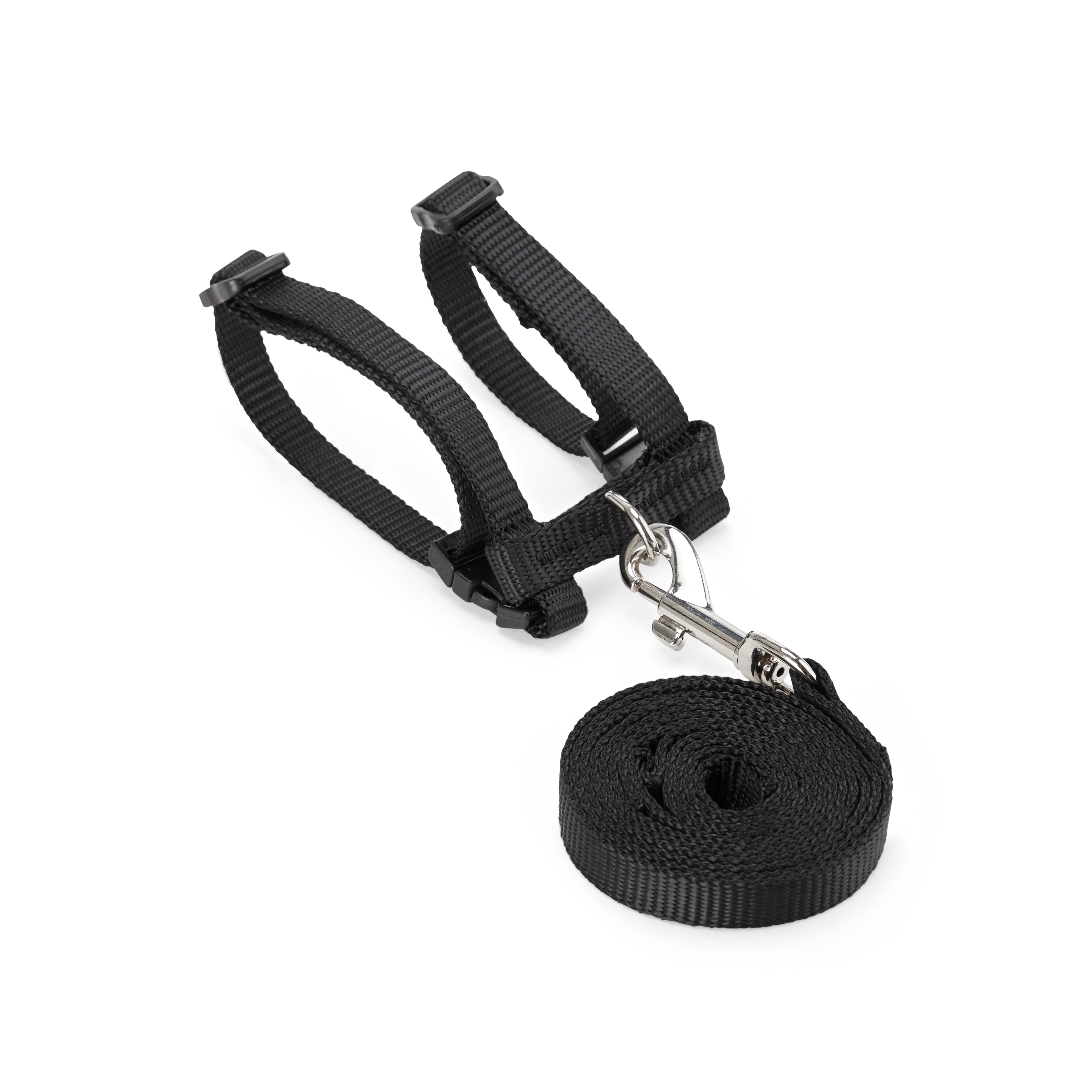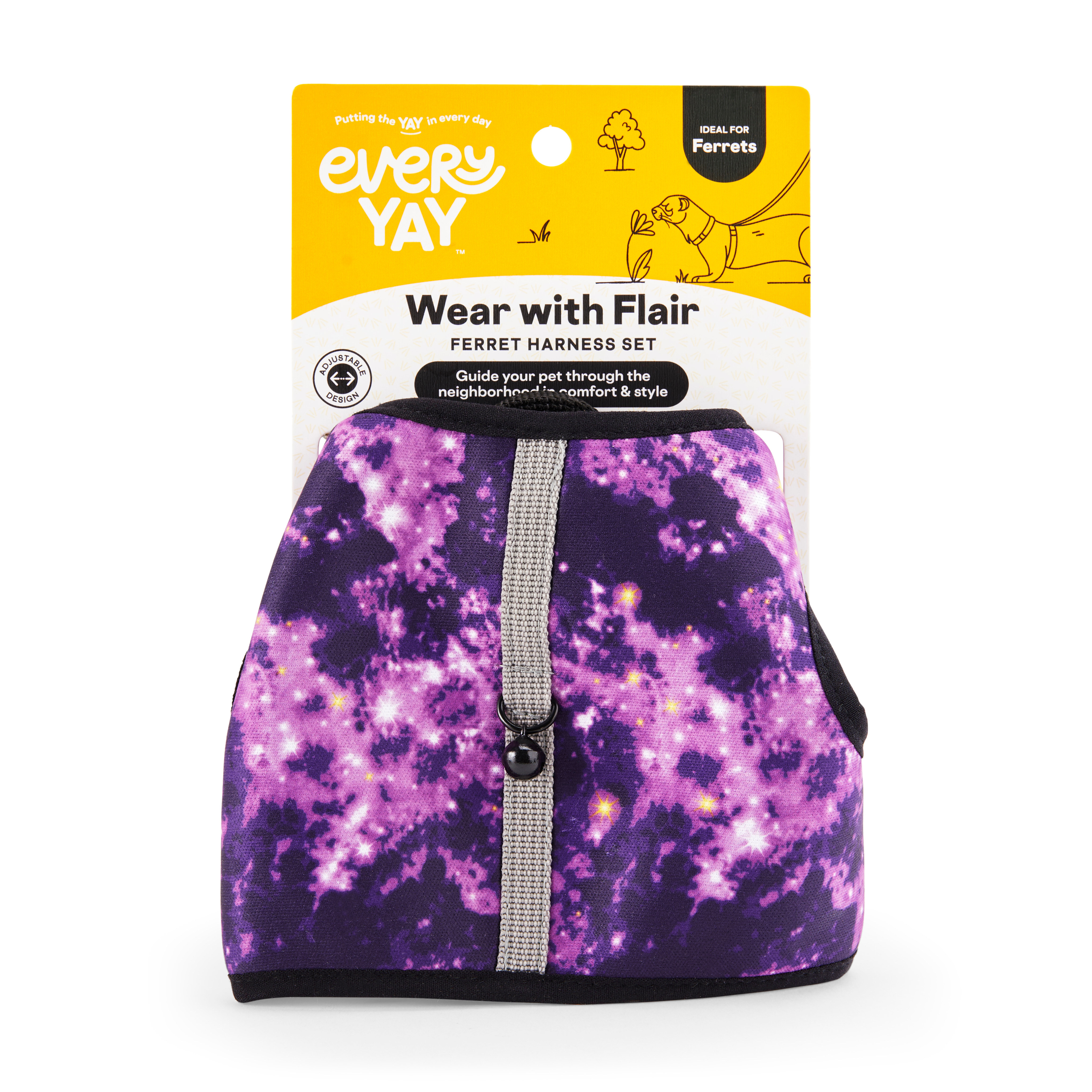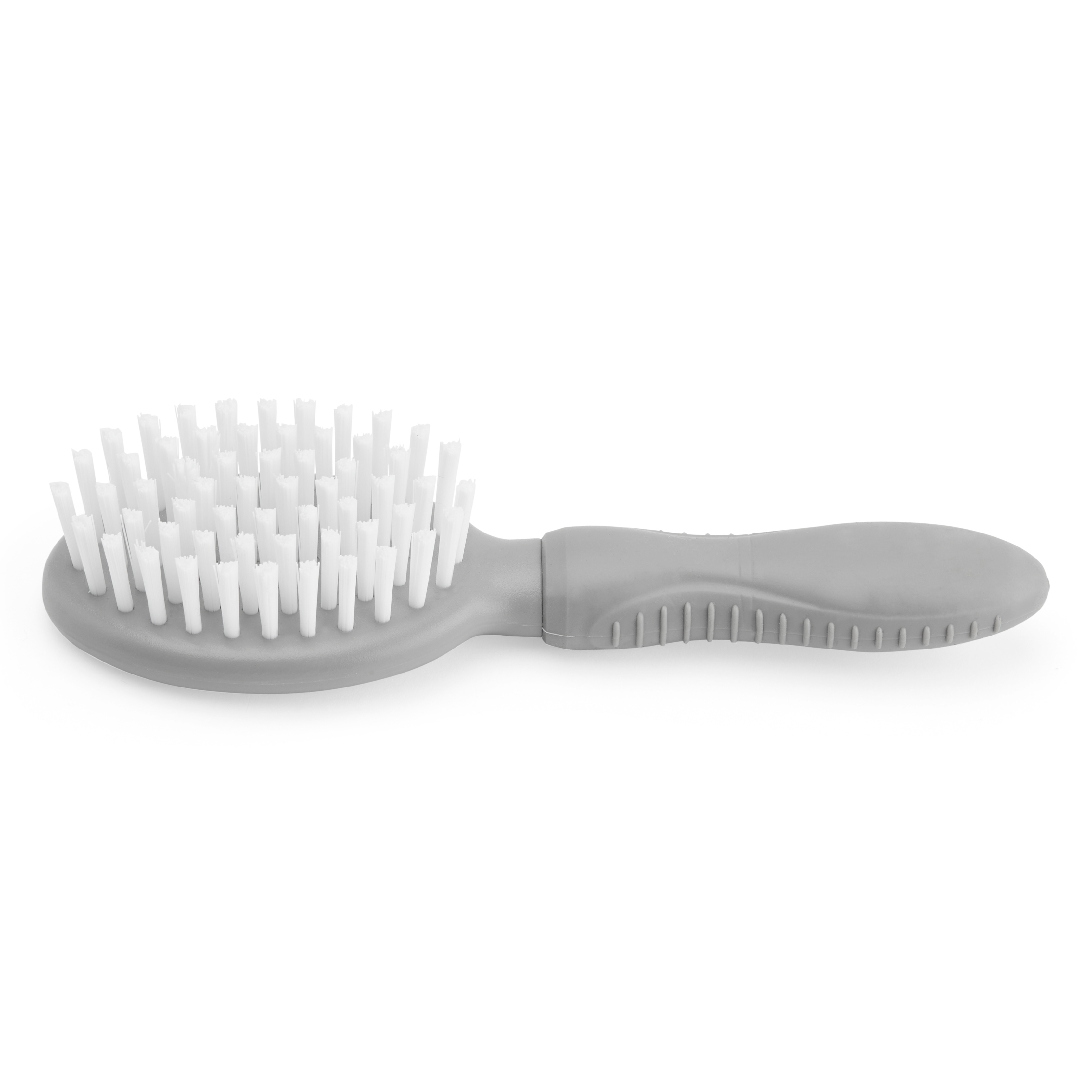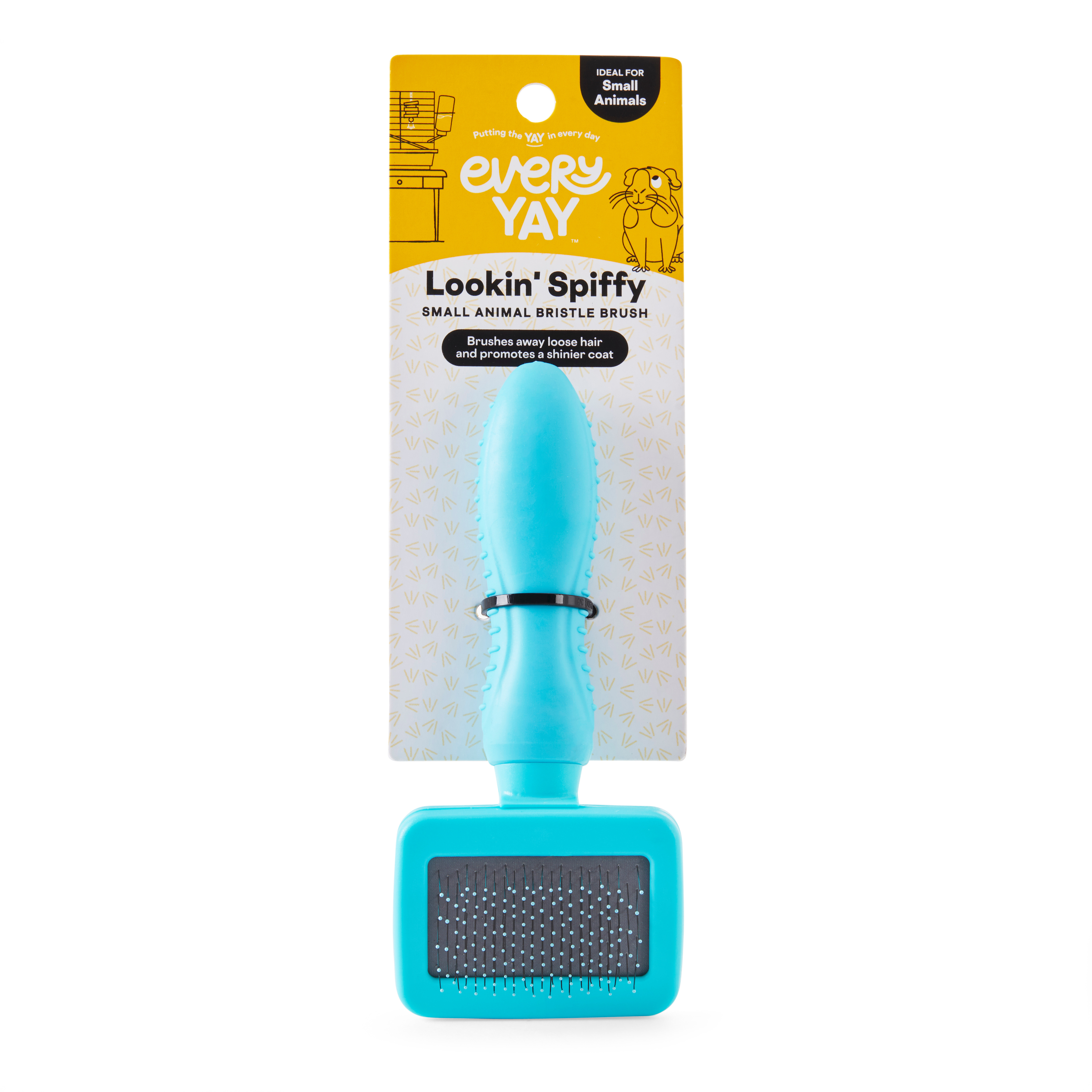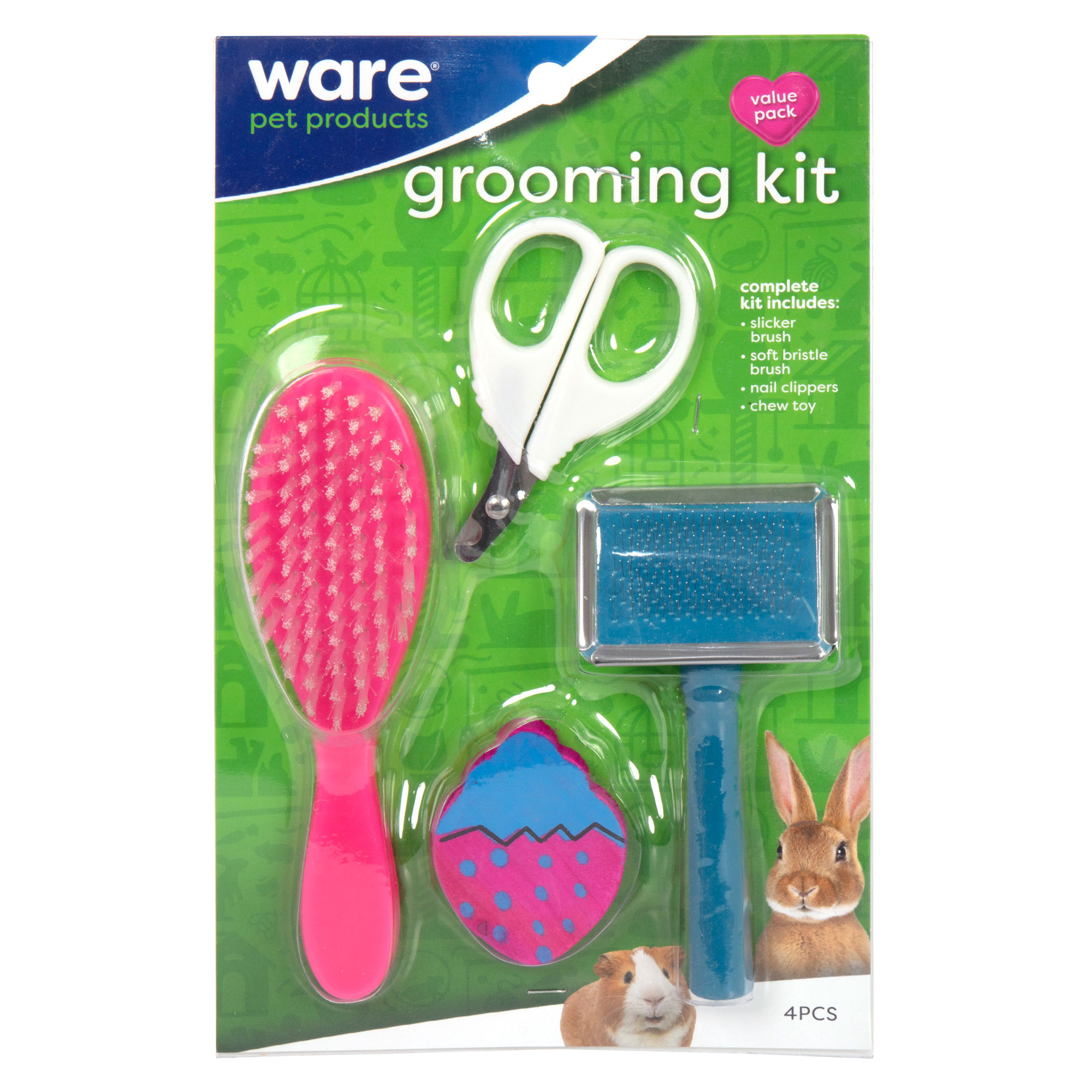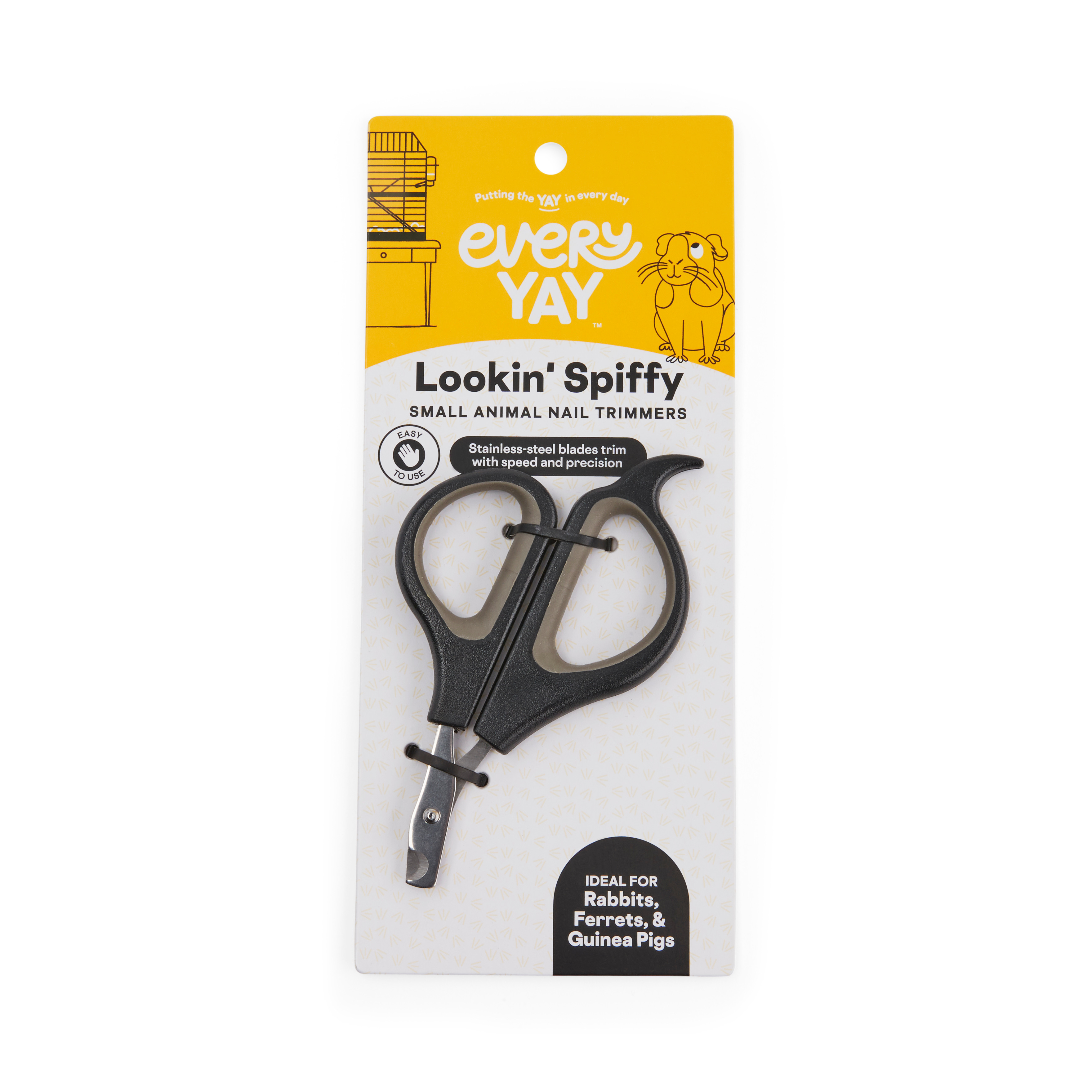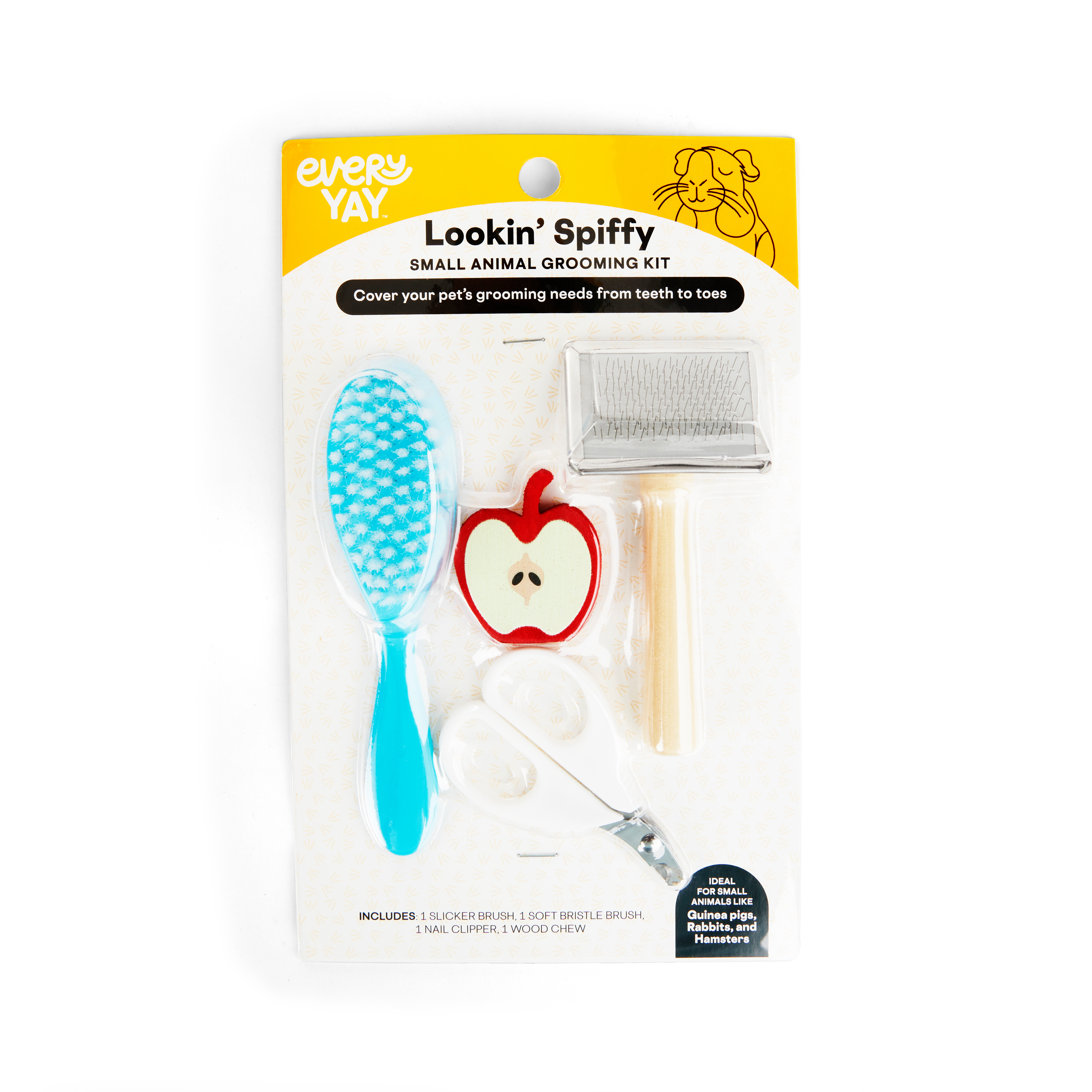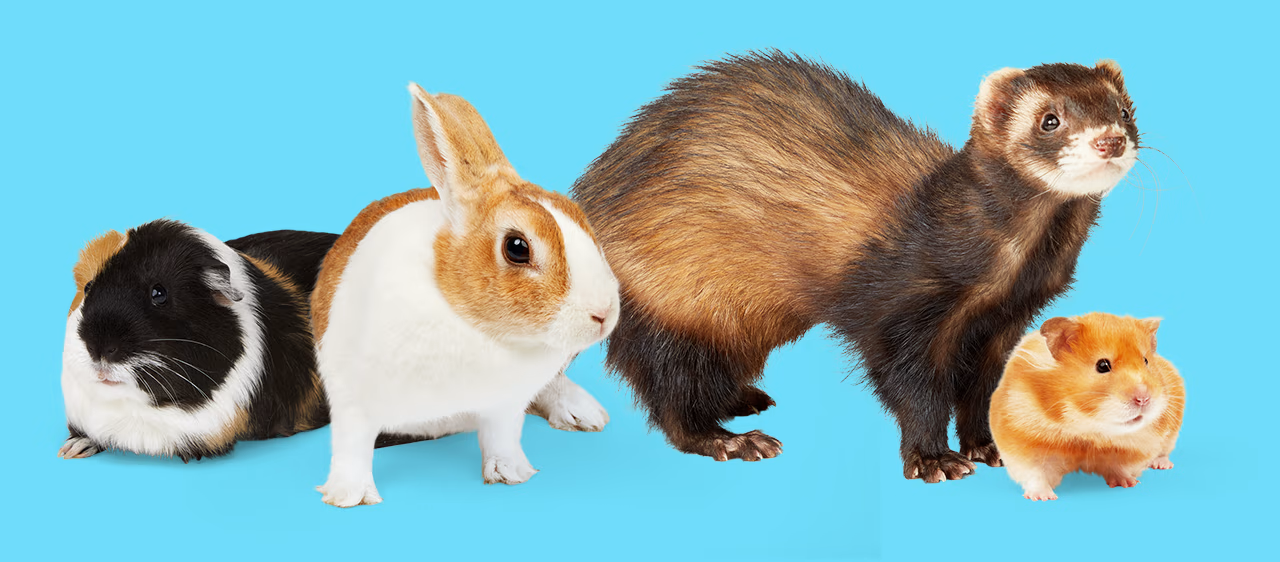
Congrats on welcoming home your new pet
The Petco NEW rabbit Guide
We’ll help you navigate pet parenthood with helpful tips, expert guidance and recommendations for every milestone.
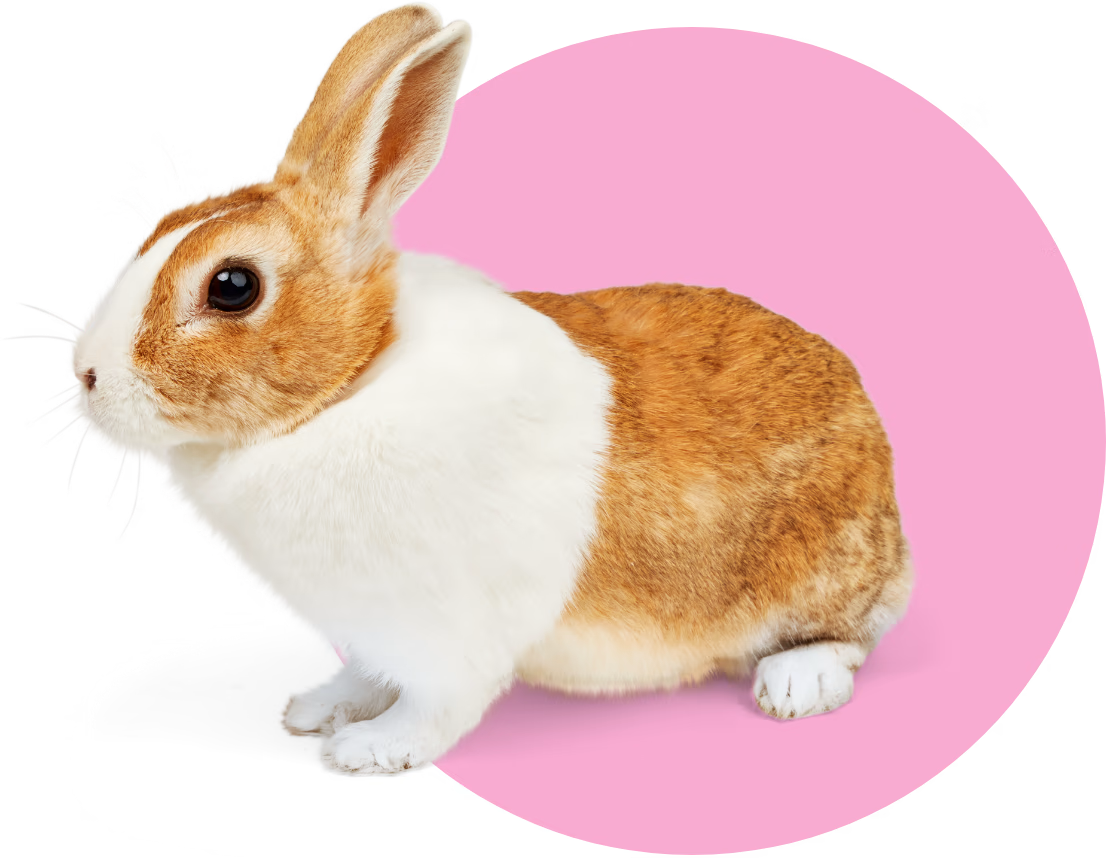

1. SETTING UP THE PERFECT HOME
Fill your space with supplies and essentials before your rabbit arrives to help them feel comfortable and safe from the start.
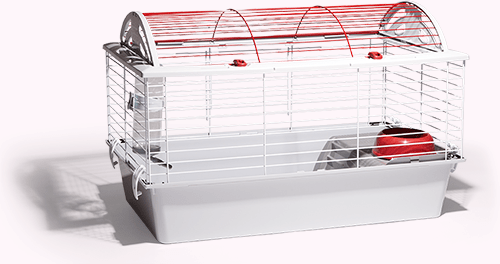
Habitats
An ideal habitat is at least four times the size of the rabbit so they can fully stretch out and hop around.
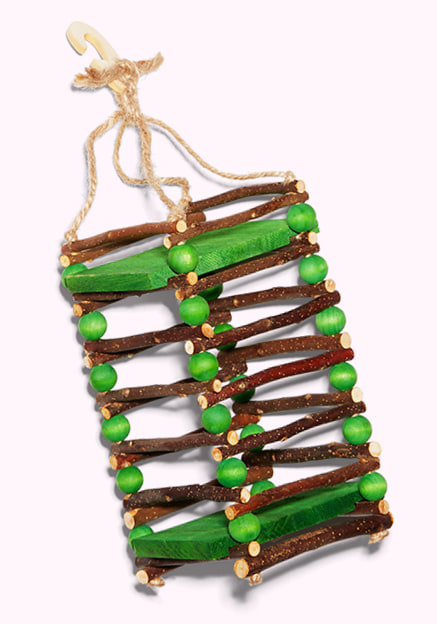
Hay racks and food bowls
Keep food and hay off the ground so it doesn’t get soiled.
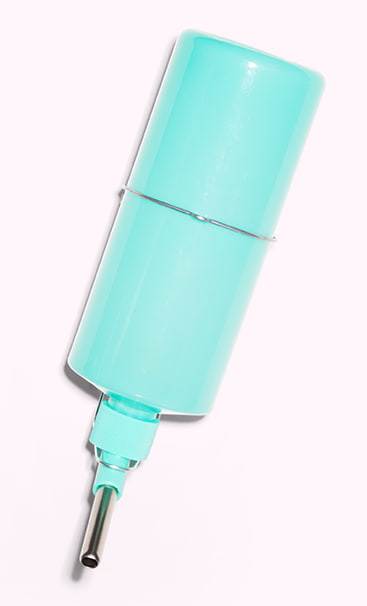
Water bottles and bowls
Offer clean, fresh water in a water bottle or a bowl, and make sure to refill daily.
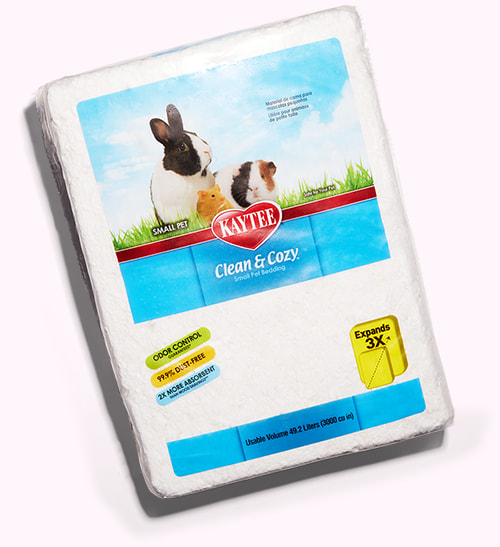
Bedding
Place 1–2 inches of shredded or pelleted paper bedding in your rabbit’s habitat.
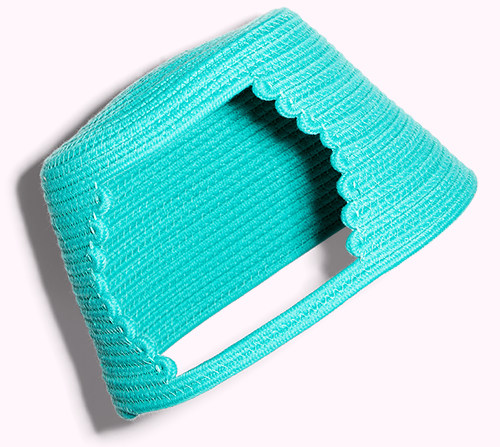
Hide boxes
Provide them with a safe place to hide away when they want privacy.
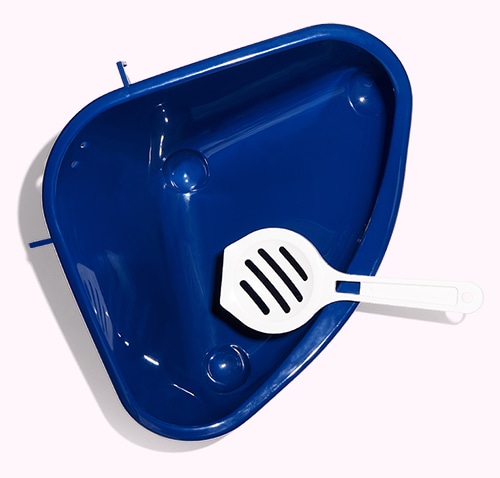
Litter boxes
Train them to use a litter box with special litter made just for rabbits.
-
Habitats
An ideal habitat is at least four times the size of the rabbit so they can fully stretch out and hop around.
-
Hay racks and food bowls
Keep food and hay off the ground so it doesn’t get soiled.
-
Water bottles and bowls
Offer clean, fresh water in a water bottle or a bowl, and make sure to refill daily.
-

Bedding
Place 1–2 inches of shredded or pelleted paper bedding in your rabbit’s habitat.
-
Hide boxes
Provide them with a safe place to hide away when they want privacy.
-
Litter boxes
Train them to use a litter box with special litter made just for rabbits.
2. Finding the right food
Set a strong foundation for your new pet’s physical health with quality nutrition.
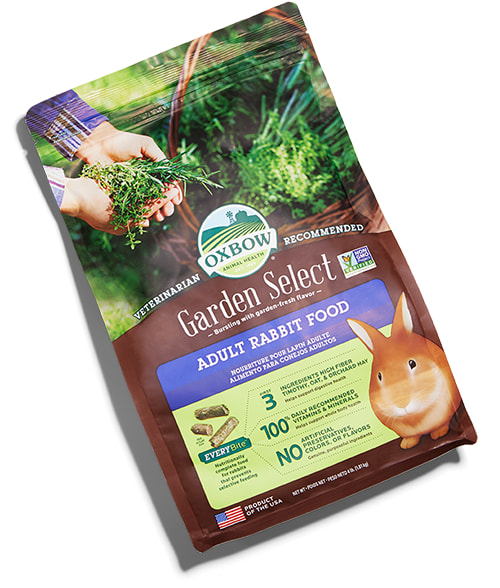
Food
Feed them a species-appropriate, high-fiber, low-sugar diet.
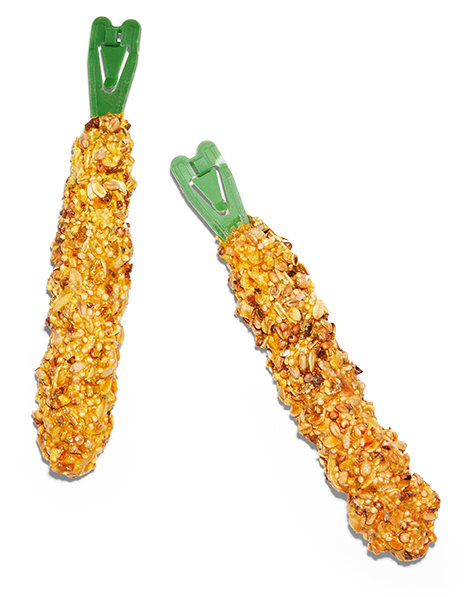
Treats
Be sure treats make up no more than 10 percent of their diet and include quality ingredients plus vital nutrients so they stay at a healthy weight.
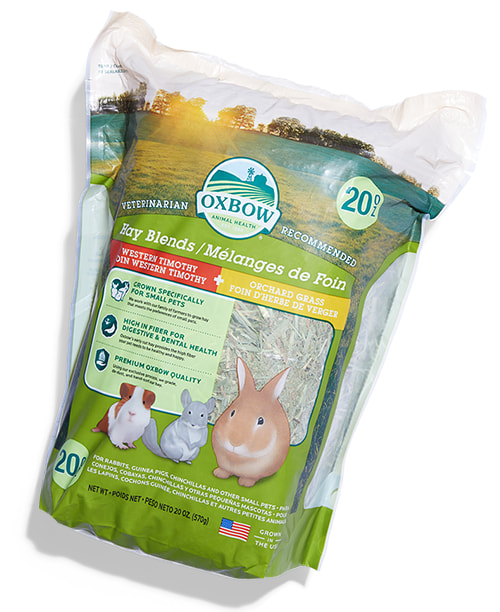
Hay
Provide unlimited amounts of grass hay, like Timothy, orchard grass, oat or meadow hay.
-
Food
Feed them a species-appropriate, high-fiber, low-sugar diet.
-
Treats
Be sure treats make up no more than 10 percent of their diet and include quality ingredients plus vital nutrients so they stay at a healthy weight.
-
Hay
Provide unlimited amounts of grass hay, like Timothy, orchard grass, oat or meadow hay.
3. KEEPING YOUR RABBIT HAPPY
Bond and play with your new pet every day to help socialize them and make them feel more comfortable in their own home.
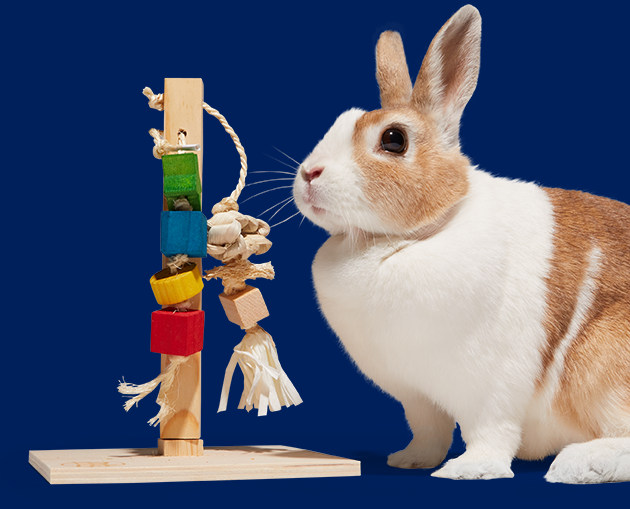
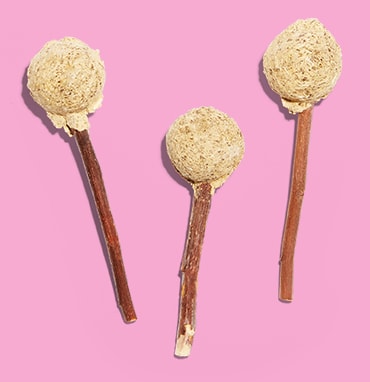
Toys
Fill your rabbit’s home with toys and rotate them regularly to help prevent boredom.
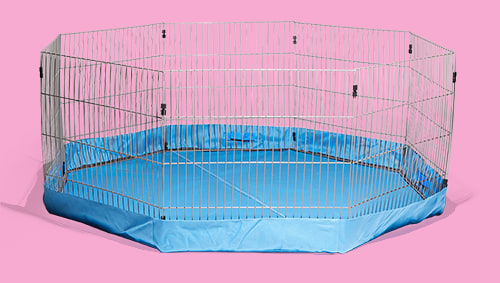
Playpen
Allows them to get additional exercise and explore outside of their habitat safely.
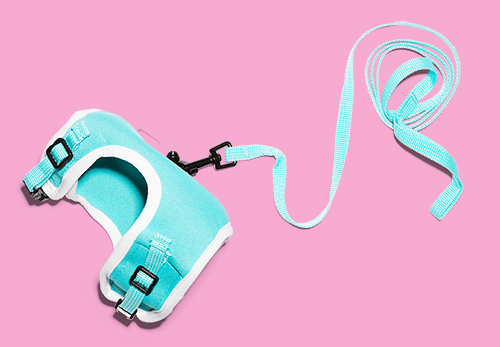
Harness & leash
With training, some rabbits can learn to explore in a properly fitted harness and leash.
4. Understanding your rabbit
By learning more about their behaviors, you can help support their social health and strengthen your bond.

Binky
When rabbits are happy, their jumping and twisting is called a “binky.”

Twitching noses
Although experts aren’t sure why their nose twitches so much, we know a clean, dry, twitchy nose is a sign of good health.
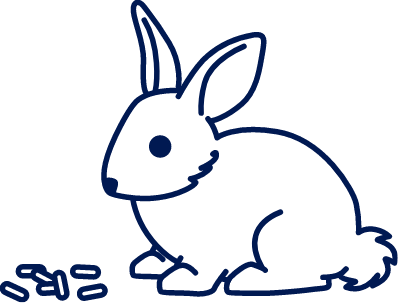
Coprophagy (Ingesting stool)
If you see your rabbit eat their stool, don’t worry; the softer, nutrient-rich stools they produce early in the morning or late night provide vitamins and minerals when ingested.
5. BUILDING A ROUTINE
A consistent routine for cleaning, bathing and dental care can help support their wellbeing while they settle in.
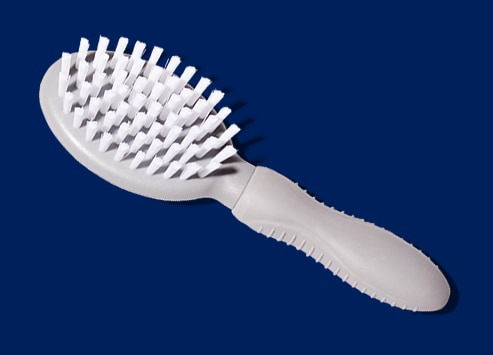
Brushes
Use a soft brush weekly—or a few times a week if you have a long-haired rabbit—to help decrease hair ingestion and prevent tangles.
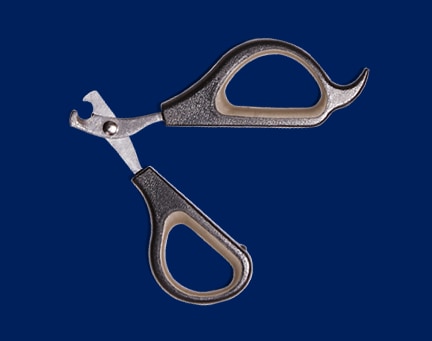
Nail care
We recommend clipping your rabbit’s nails once a month to help prevent discomfort and keep their nails at an appropriate length.
Pet Rabbit Foods
Rabbit Shop
Rabbit Carrier
Pet Small Animals
Best Rabbit Food
Rabbit Litter Box
Indoor Rabbit Supplies
Rabbit Toys
Rabbit Cages & Habitats
Small Pet Easter Shop
Small Rodent Pet Essentials
Best Rabbit Toys
Rabbit Bedding & Litter
Bunny Health Supplies
Rabbit Hutches
Gray Rabbit Hutches
Best Indoor Rabbit Hutch
Rabbit Food & Hay
Rabbit Housing Ideas
Metal Rabbit Playpens
Prevue Pet Products Rabbit Shop
Bunny Nature Rabbit Shop
Versele-Laga Rabbit Shop
Kaytee Rabbit Shop
Supreme Science Selective Rabbit Shop
Carefresh Rabbit Shop
Ferplast Rabbit Shop
Marshall Pet Products Rabbit Shop
Brown's Rabbit Shop
Vitakraft Rabbit Shop
Bunny Nature Rabbit Food & Hay
Bunny Nature
Bunny Nature Small Animal Food
Bunny Nature Small Animal Food & Treats
Prevue Pet Products Rabbit Cages & Habitats
Versele-Laga Rabbit Food & Hay
Sun Seed Rabbit Shop
Oxbow Rabbit Shop
Pets So Good
Brown's Rabbit Food & Hay
I want to bye a rabbit please guide me to choose a best rabbit for me
I just got a pet rabbit it is estimated to be about 1 years old. I was wondering how often I should feed him? If I can change his food and what type you recommend? Can I introduce fresh veggies? Do we cut his nails and if so often?
What is the best bedding for my rabbit
How to stop my pet rabbit from breeding?
Hi, Yesterday we bought a new rabbit, Dizzy. We are getting her spayed next week, and after that we are going to properly introduce her to our other rabbit Buddy. Do you have any tips on how to introduce them to eachother, they’ve only seen one another through there cage doors
Tips on how to get your rabbit to come to you?
i need help wih my newborn rabbit olesase help
How should I welcome a 2 month old bunny inside my house?
Our rabbit just had 5 babies three days ago. We just got her two weeks ago and had no idea she was pregnant is there anything specific we need to do
I just got this bunny. the people i got them from said she was identified as half domestic and half wild. we checked for fleas and mites there was none but she itches and chews herself a lot. i’ve never have a rabbit before this
Hi I have a small rabbit it's a female, she's 2 months old , I want to know if she needs vaccines?
I am planning to buy 2 months old fuzzy lop rabbit. I know they are still very fragile. How to take care of them so they won't become stress of new environment and what to feed them?also is it okay to give them papaya oxbow support supplement and other vitamins to support theit health?thank you


